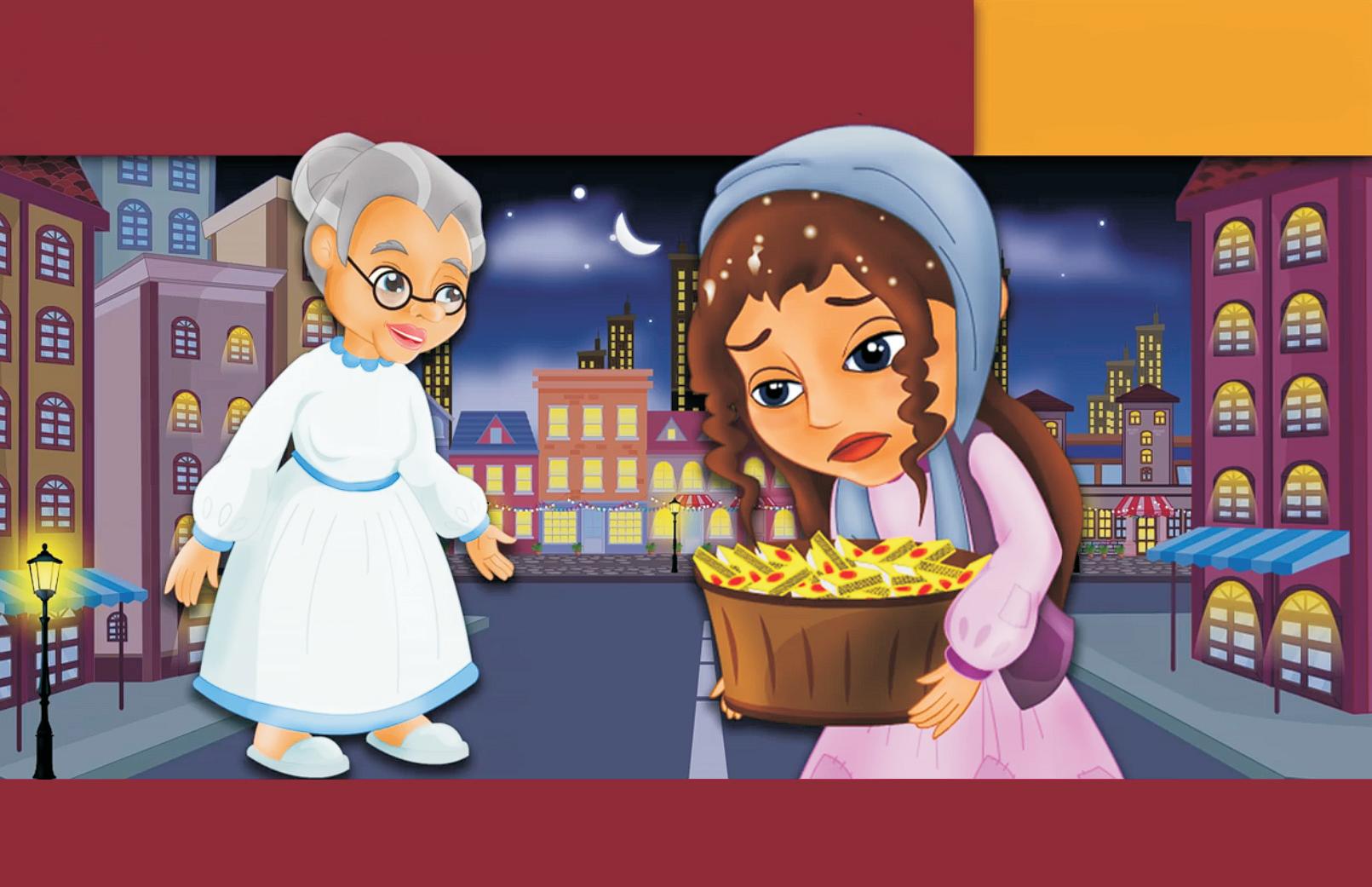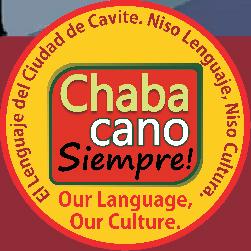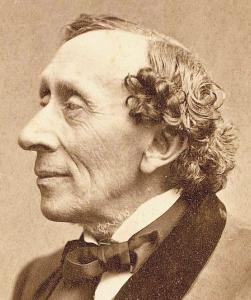El Muchacha Ta Vendi Casa Fuego
(The Little Match Girl) Chabacano Version
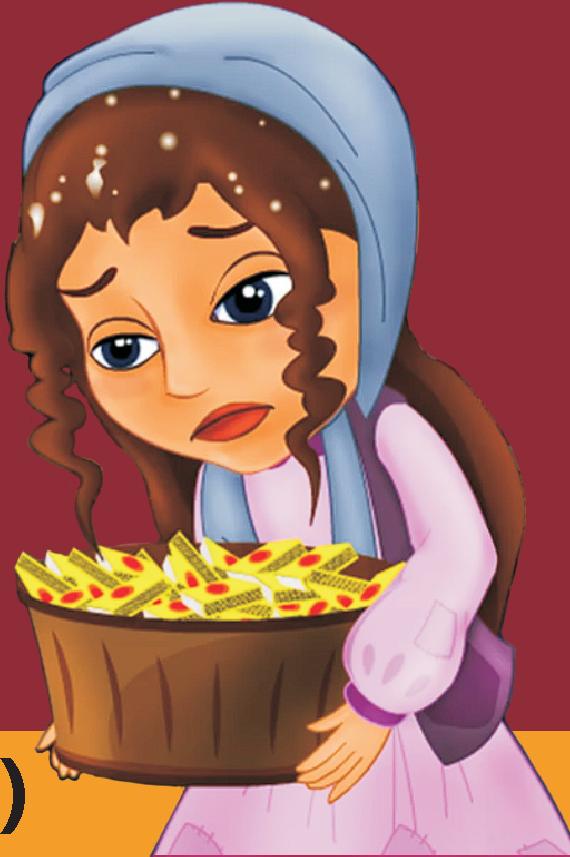

This is a story from a recent past. It was New Year’s Eve; in a city, there lived a little beautiful girl.
Este el Historia antes antimano. Queda Visperas del Año Nuevo, tiene un bonita muchacha que ta quedá na una ciudad.

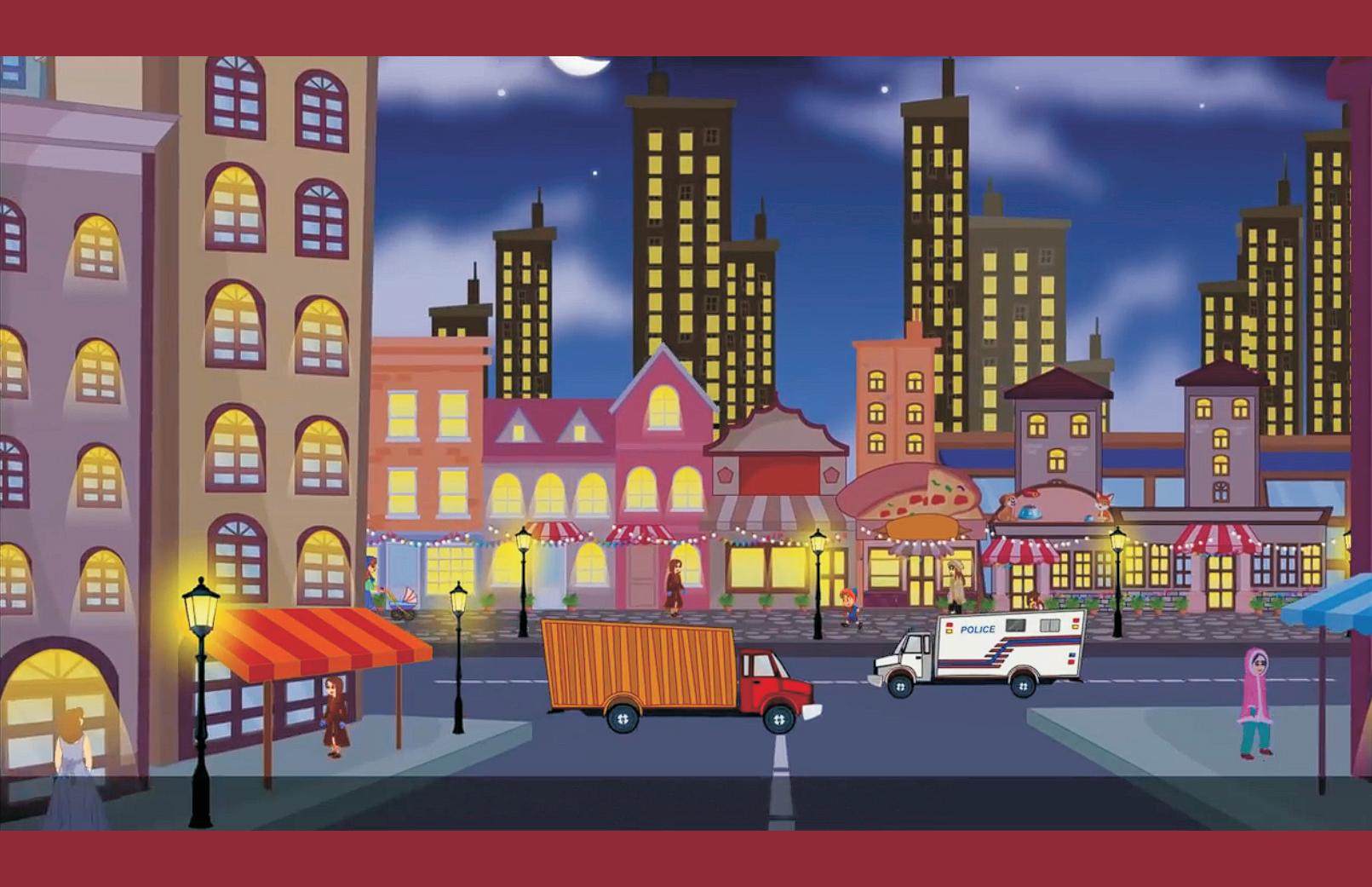
She was walking on the roadside with bundles of matches in her hands, and a few of them in the pocket of her apron, too.
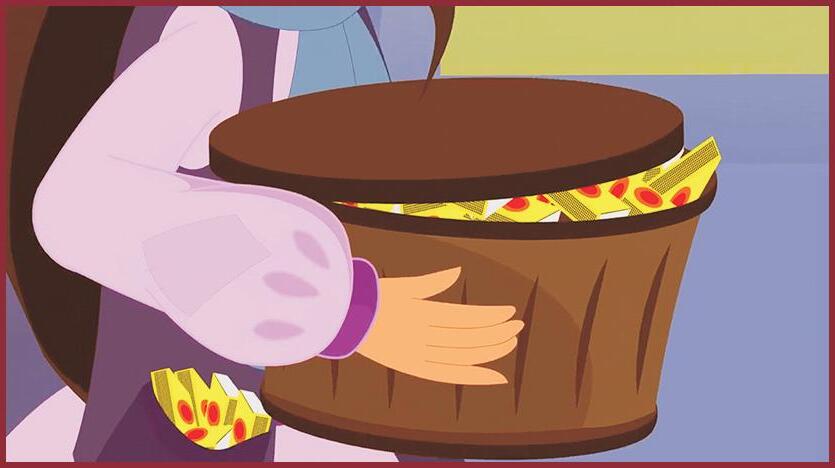
Ta caminá ele na orilla del calzada llevando mana paquetes del casa fuego, tiene rin ele un poco, que ya puní ele na bolsa de su delantal.

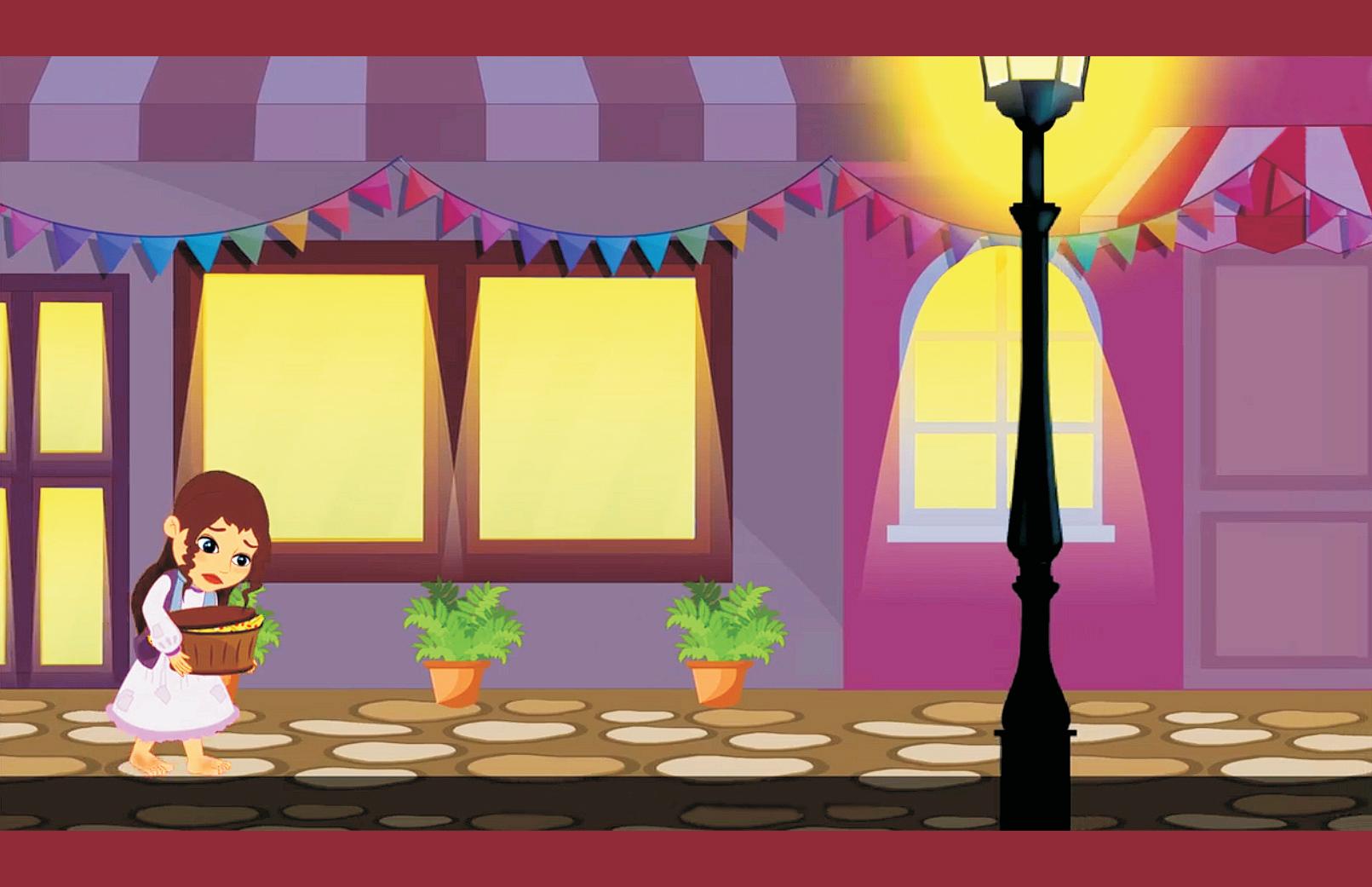
It was cold and there was snowfall which has covered her head and hair. She was walking since the morning but no one buys even a single matchbox.
Frío el clima y ta caé rin nieve que ya cubrí su cabeza y pescuezo. Andenante pa na temprano ele ta caminá, caso nadie ta cumprá ni uno de su casa fuego.

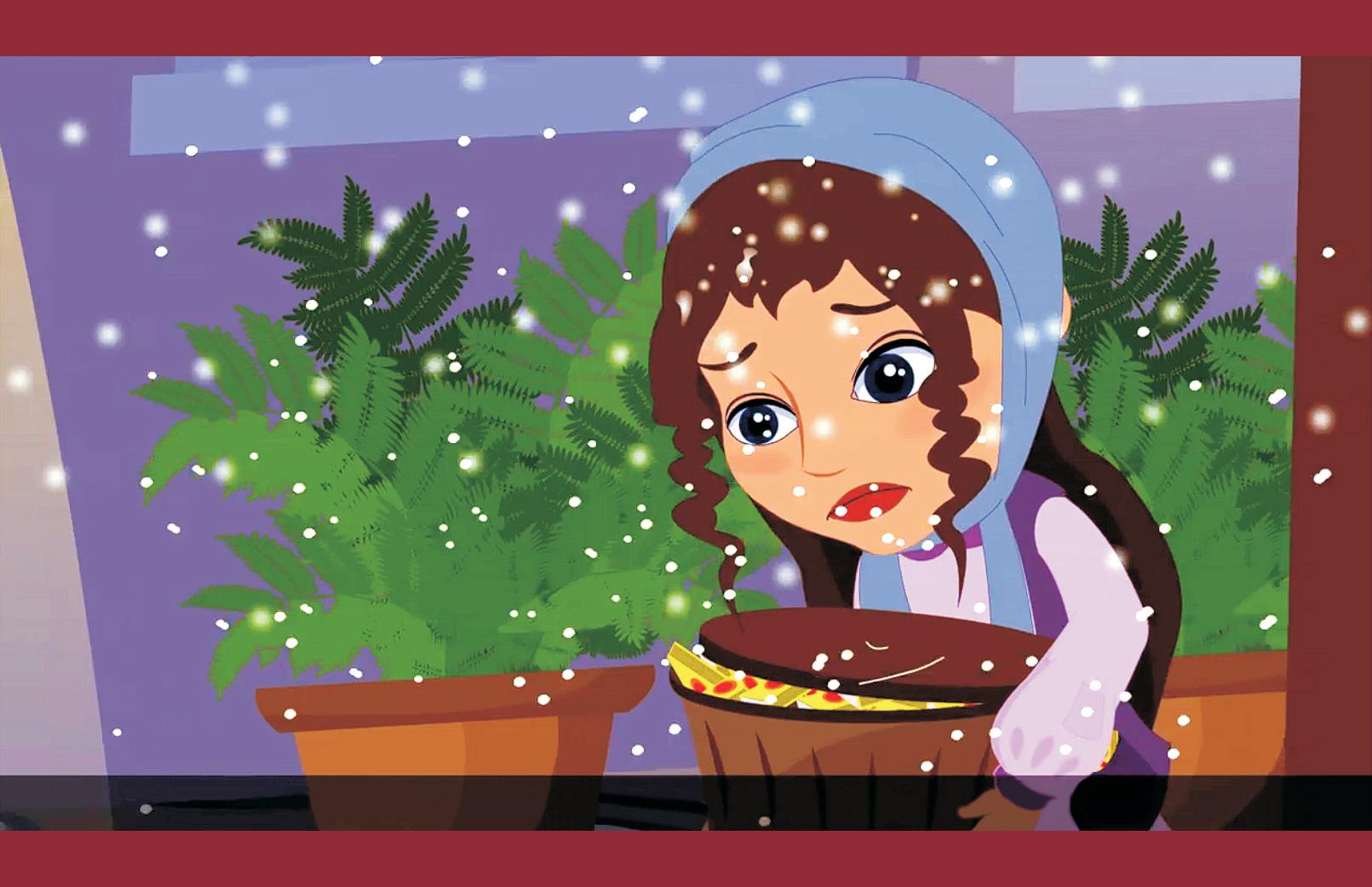
She approached everyone on the road, but nobody purchased a single match from her as everybody was enjoying the New Year’s eve out there.
Ya atracá ele masque quien gente na calzada, para vendí su casa fuego, pero nuay que ta cumprá masque ni uno palito na ele, por casa, ta disfrutá todo el mana gente el año nuevo na fuera.

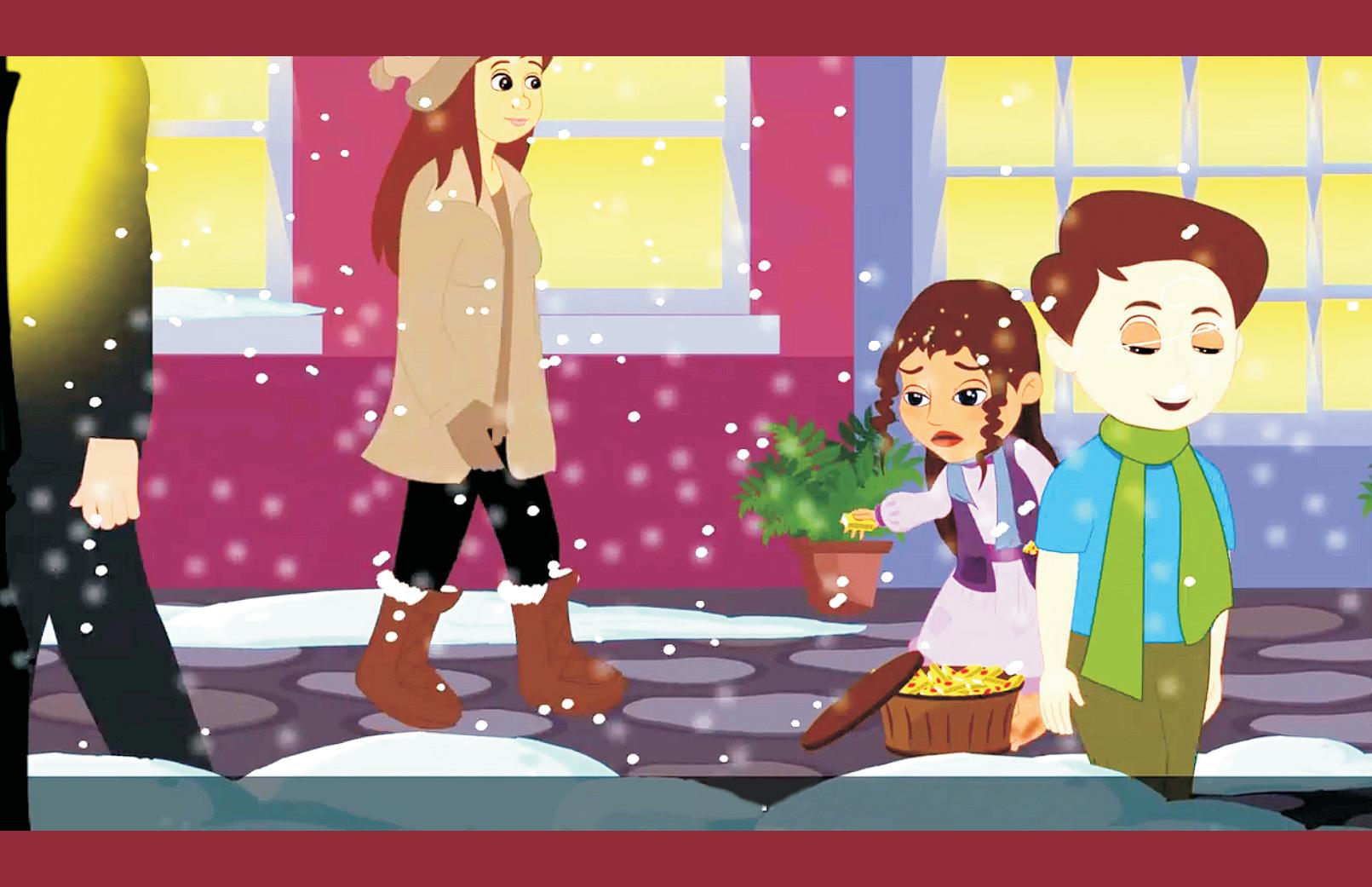
Walking through the footpath, the girl saw many shops, full of cakes and various foods. And she saw many restaurants with people eating different foods with candles burning on the table.
Mientras caminando na camino, la muchacha ya mirá mucho mana tiendas, llenong llenu de postres y mana otro otru comidas sabroso.
Tiene rin ele ya mirá, mucho mana restaurantes llenong llenu de mana alegre gente, ta comiendo mana otro otru comidas diferentes con candelas quemando na ensima de la mesa.

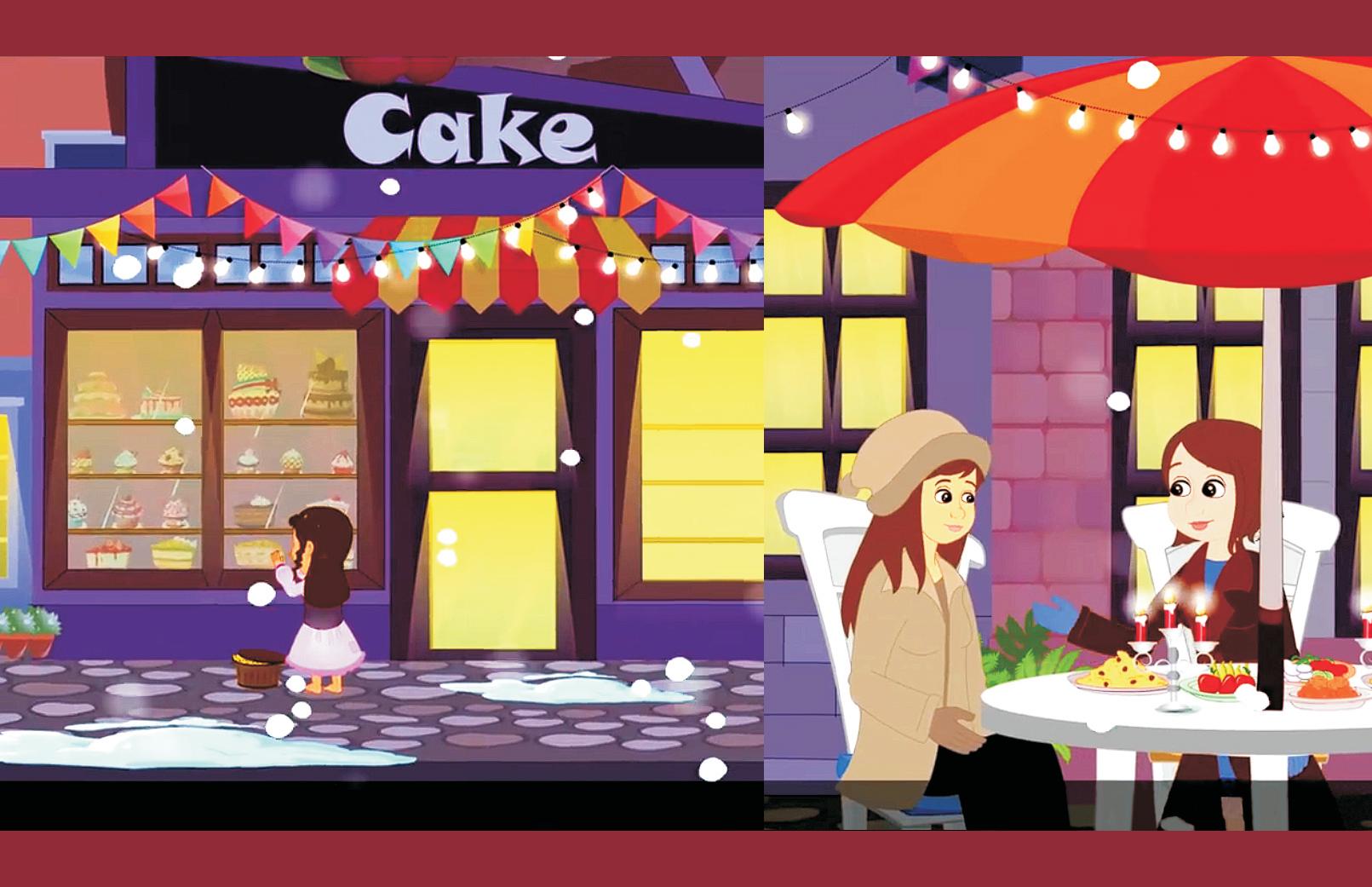
The girl was already hungry as she had no breakfast. She just ignored the sight and walked ahead.
Cunambre ya el muchacha por casa no pa ele ta comí almuerzo. Ya ignorá noma ele cosa ele ya mira, ya andá ya noma ele camina adelante.

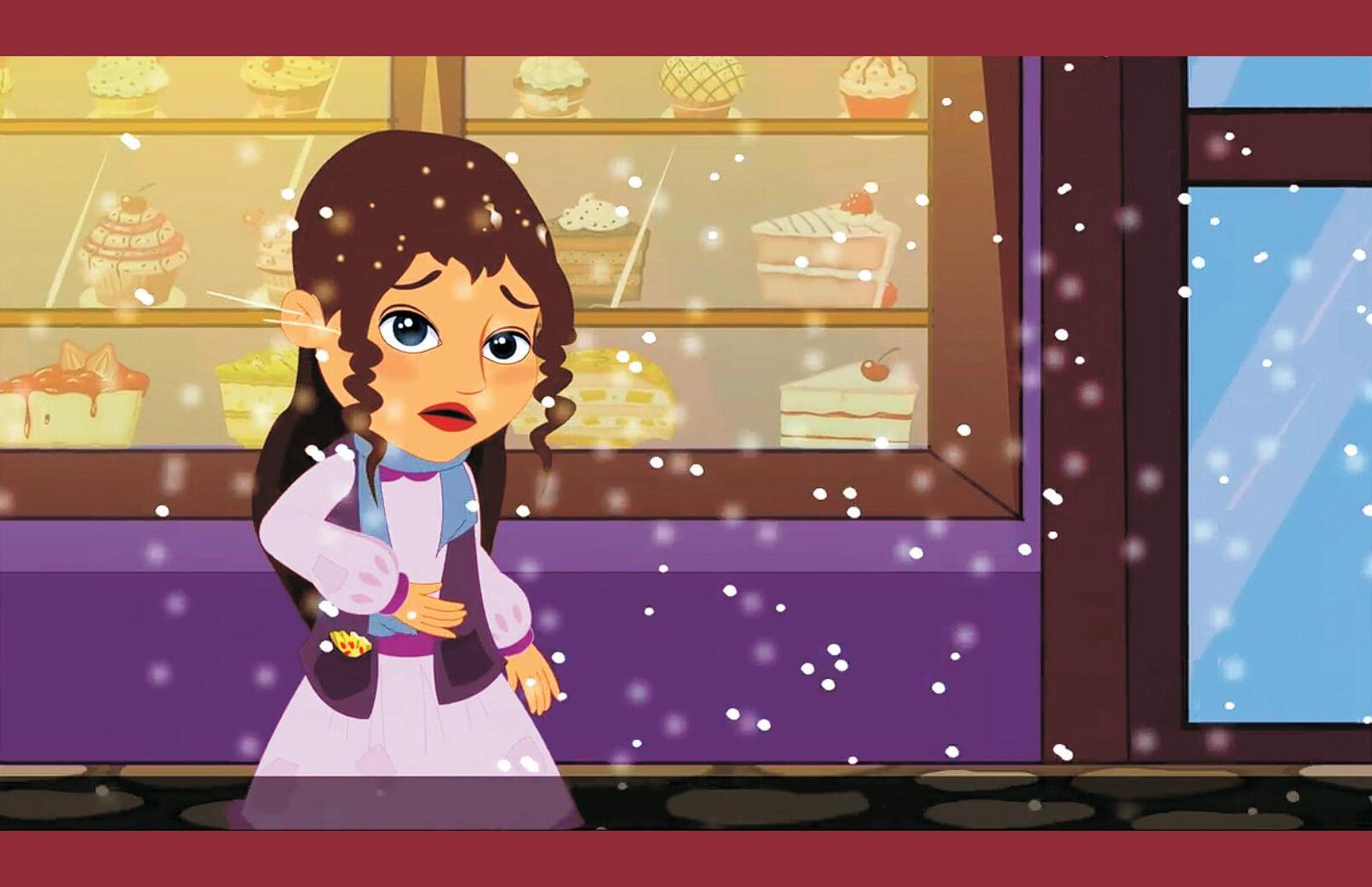
She was shivering as it was already night and it was still snowing. She was unable to walk properly as she was barefoot.
Ta temblá ele por casa noche ya, y ta caé pa rin el nieve.
No puede ma ele camina justo, por casa nuay ele mana suecos.

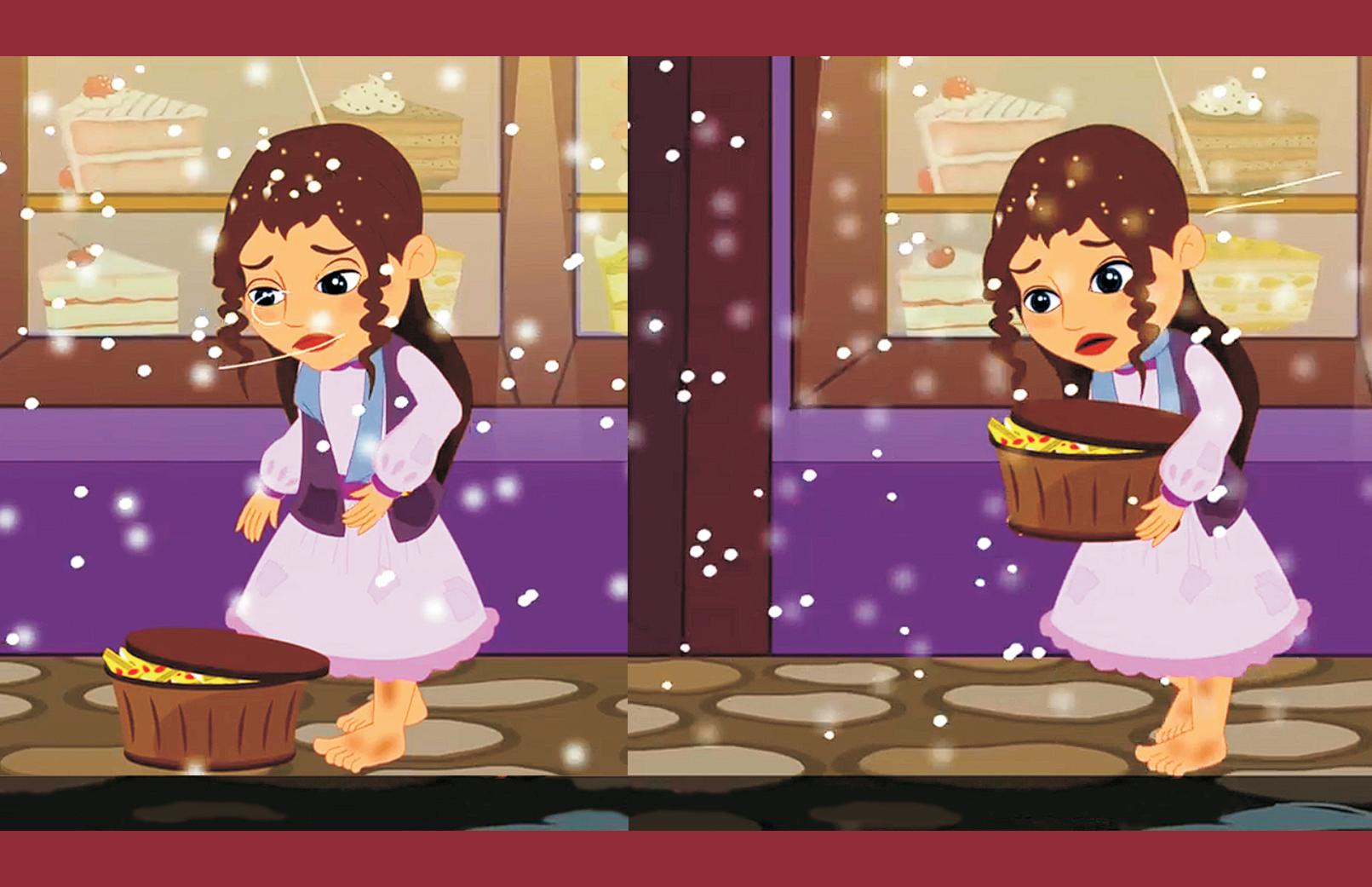
During the daytime, she was at home sitting beside her ill grandmother.
Durante de dia , Na casa ta sentá ele junto con su agüela emfermo.

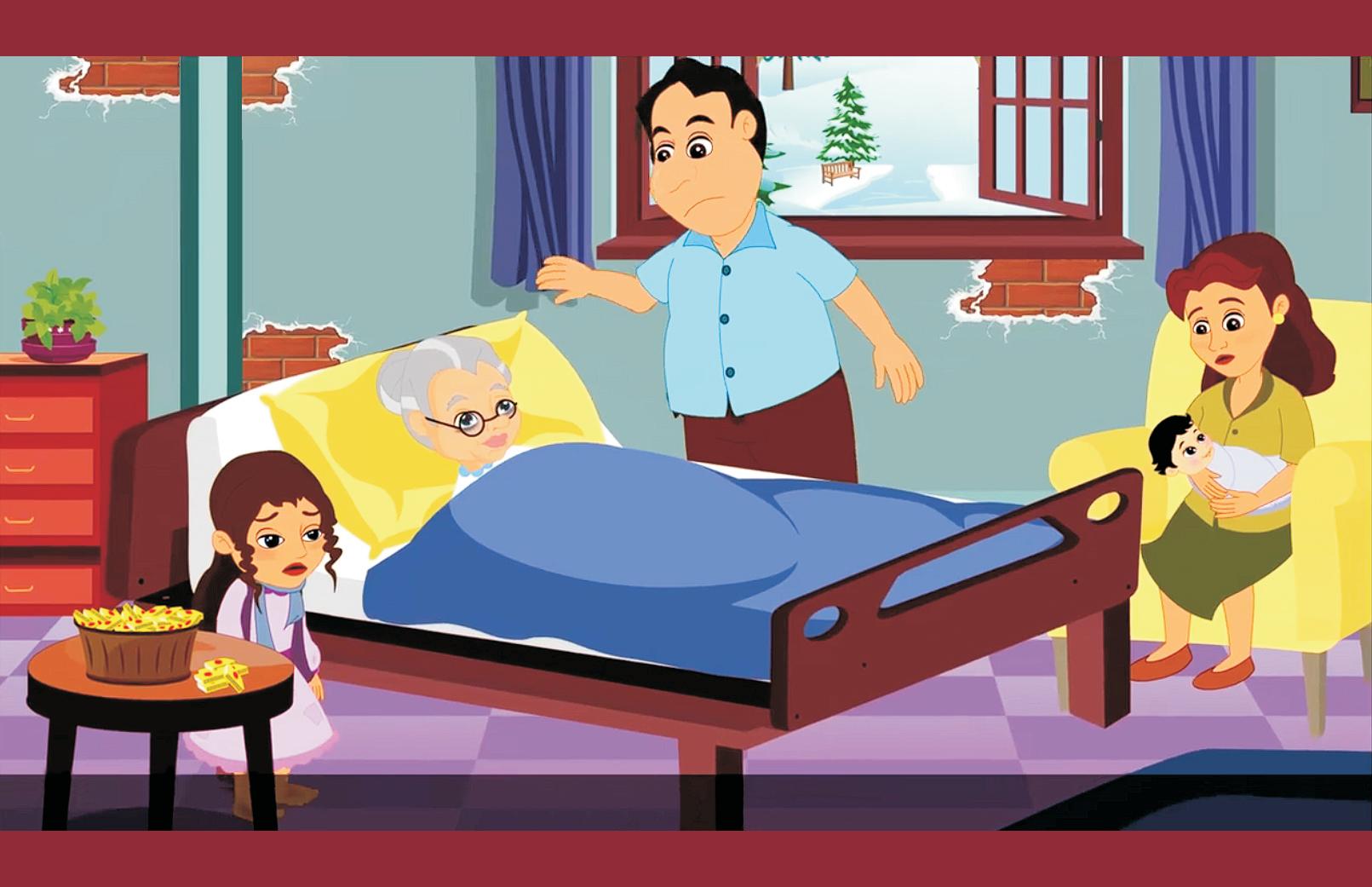
“Maria, would you please go out today to sell the matches? We could get some food if you could sell few of them.” Maria answered back, ”no mother, it’s too cold out there.”
“Maria, por favor sali tu na fuera para mang tienda casa fuego, para tiene niso pudi cumi masque umpoco,” ya bisa el nana con ele.
Ya bisa naman el muchacha, “No quiere yo nana, masiao frio afuera.”

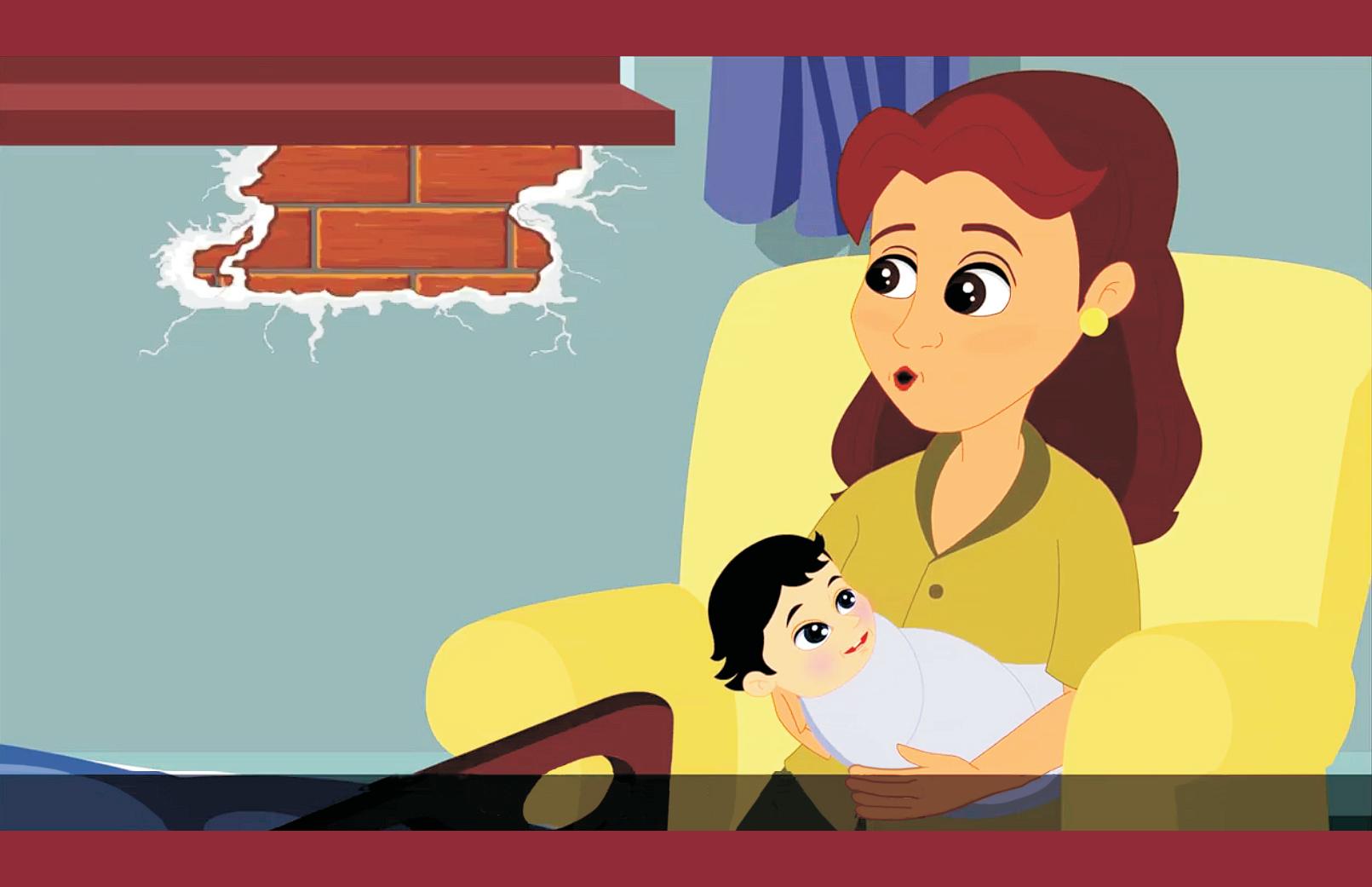
“Go you silly girl! Go and sell all those matches by evening. And don’t come home unless you sell them all.”
Ya bisa su tata, “Anda vos duro cabeza! Anda y man vendí vos el mana casa fuego hasta noche. Y No vos di retirá na casa hasta no vos pudi vendí todo el mana tienda.”

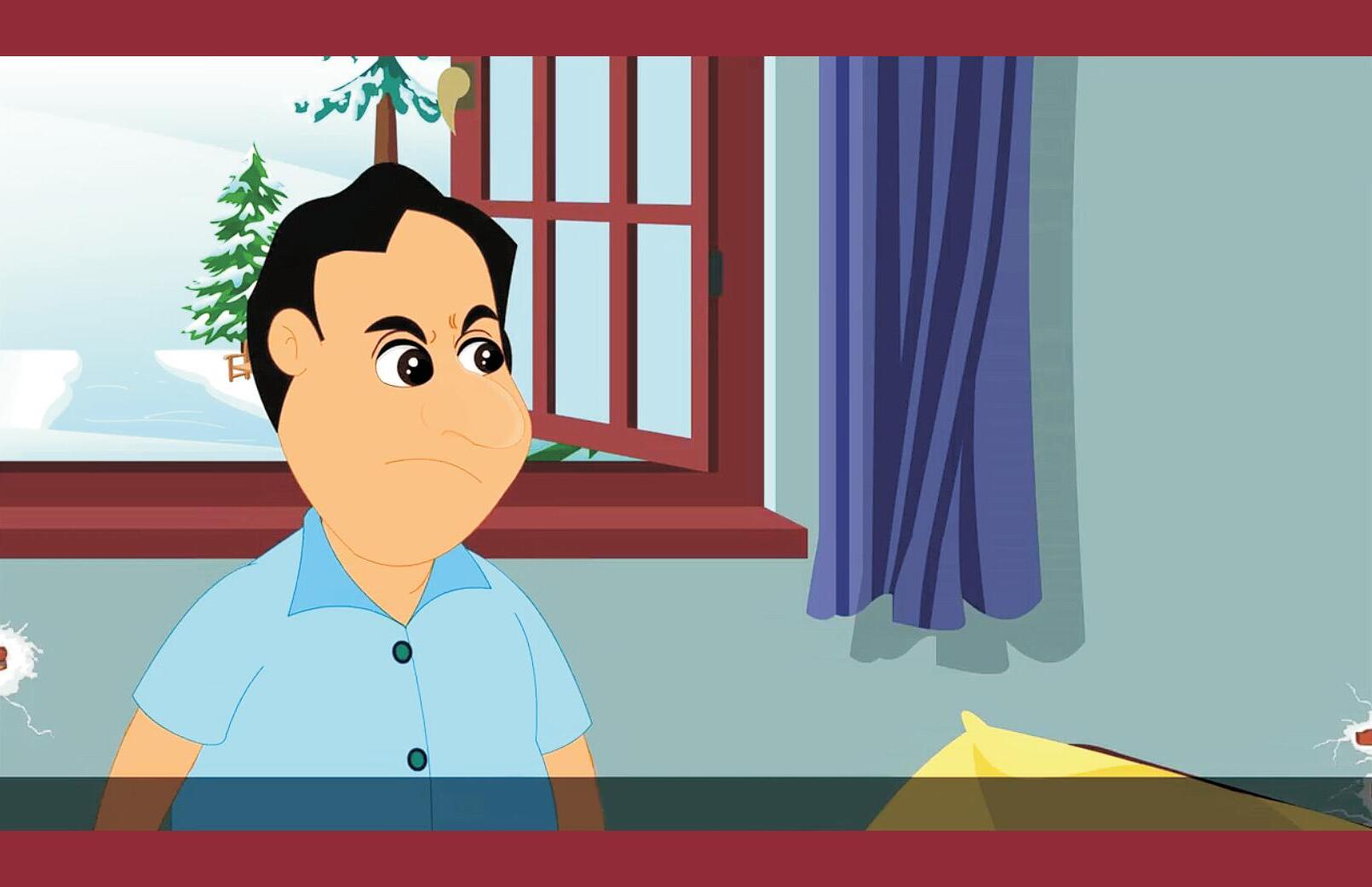
“Go dear, or else he will hit you again. I feel so sorry to have such a cruel son.”
“Anda ya vos Cariña,” ya bisá su agüela. “Si no, di gulpeá ya otraves
comvos vos tata. Dispensa y
tiene yo un hijo tan cruel como ansina.”

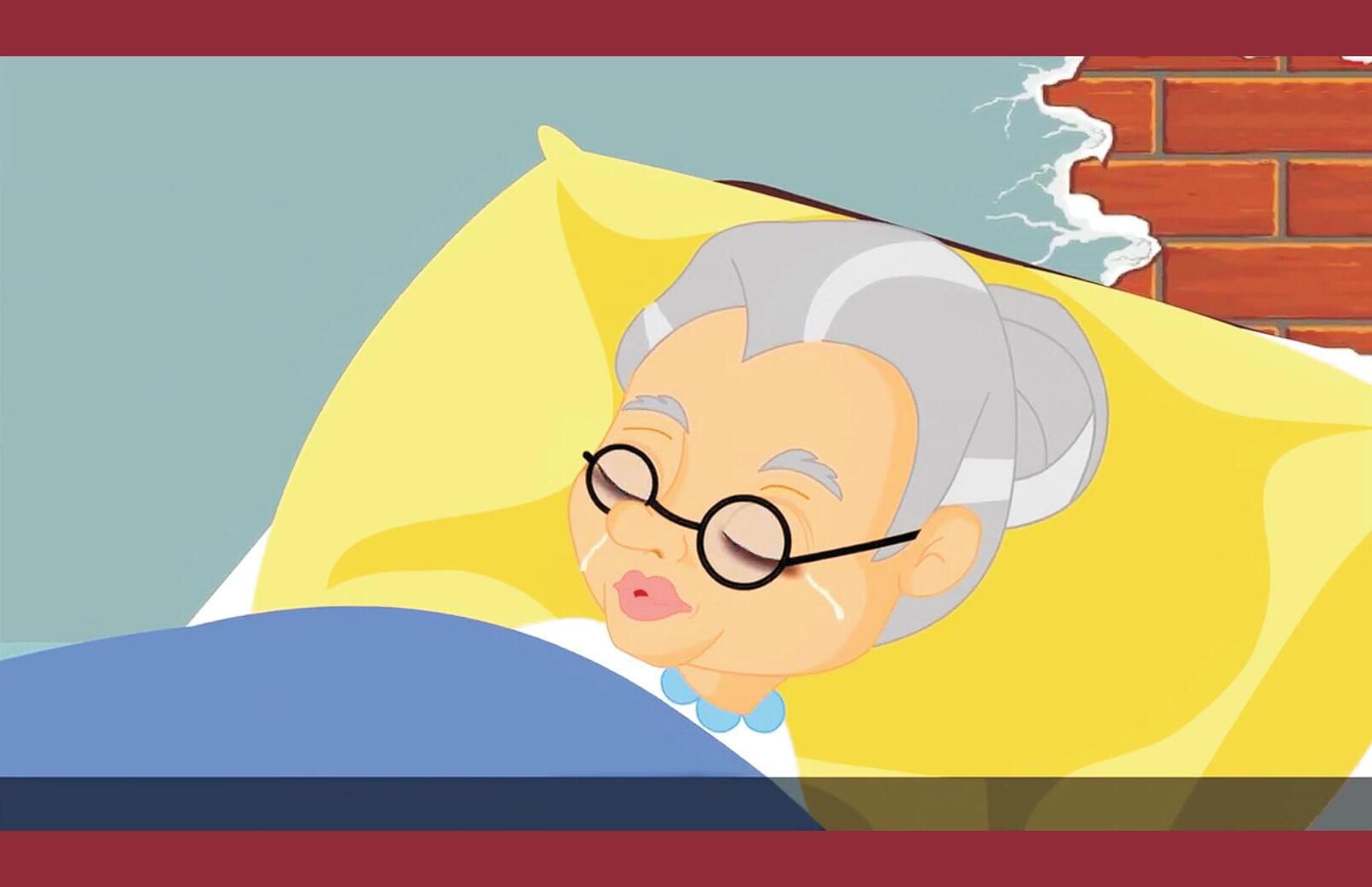
“Don’t cry anymore grandma. I’ll go sell matches.”
Mary went again to sell and wore her mother’s slippers.
“No ma uste llorá mi aguela di andá vendí ya yo casa fuego.”
Ya andá Maria otra vez para man vendí, y ya vestí ele el mana grande suecos de su nana.

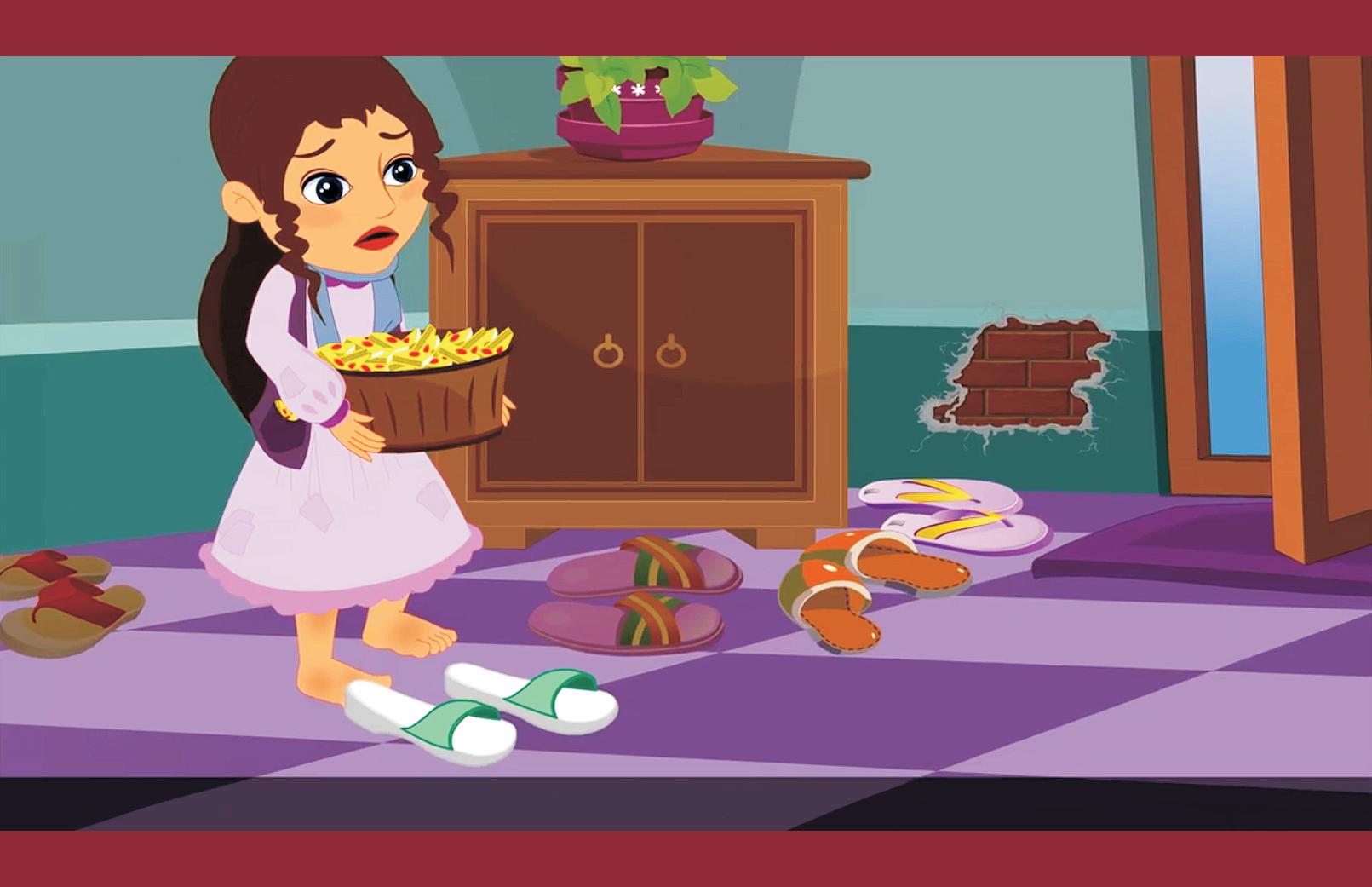
She tried her best approaching people to buy matches but still no one bought from her.
Ya hacé ele todo que puede ele, ya atracá ele mana gente otra vez y otra vez para comprá casa fuego, pero nuay pa rin que comprá con ele.

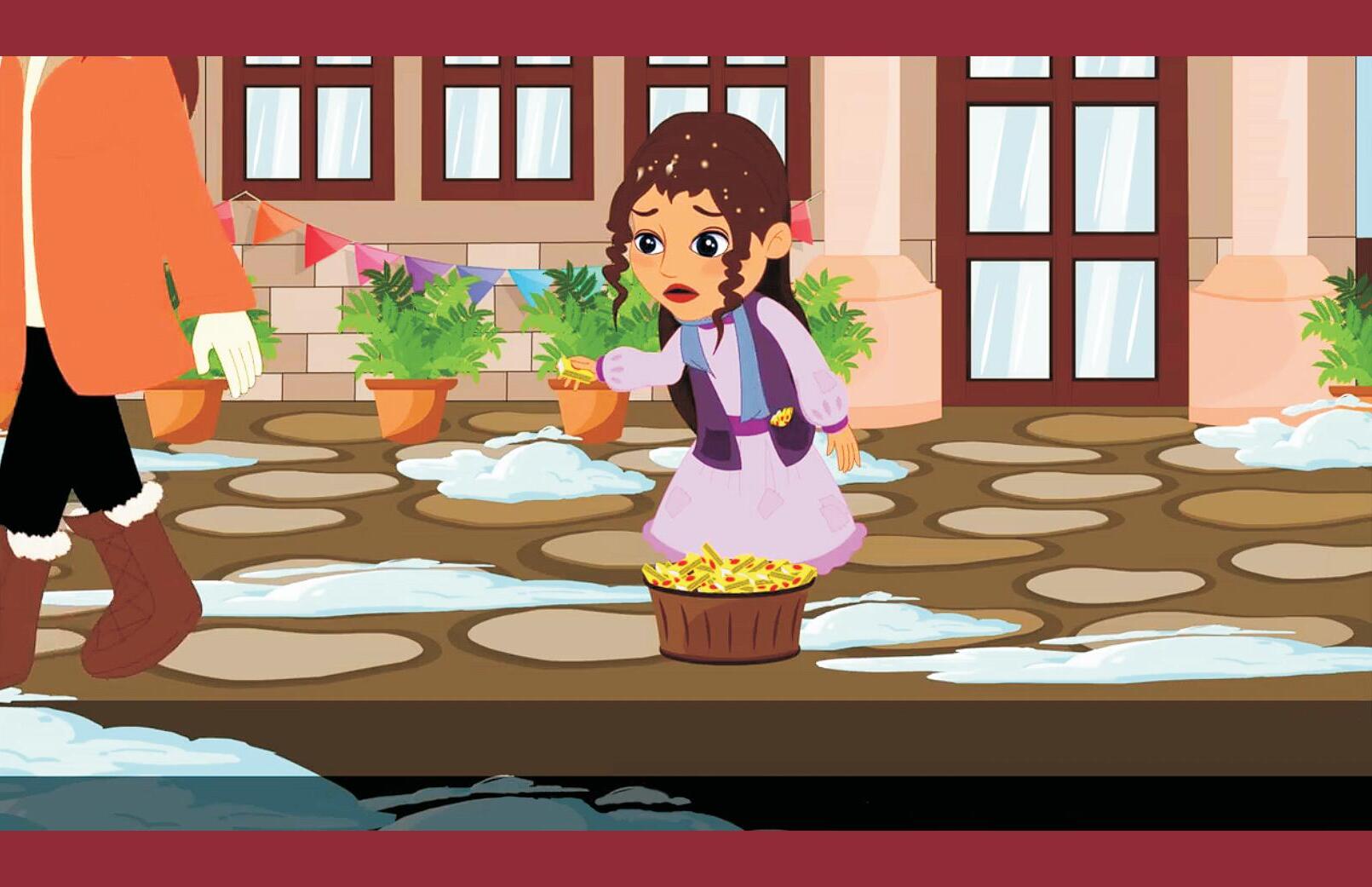
It was getting dark and Mary was very hungry, but she remembered her father’s treat thus she started walking again to sell yet no one buys.
Ta queda noche ya y cunambre ya tambien Maria, pero ya culdá ele si cosa ya bisa su tata. Ya caminá ele otra vez para man vendí, pero nuay pa rin que comprá.


Tired, she found a corner between two houses, and decided to seat there for a while because the cold is getting unbearable. The girl with matches in her hand thought if she burns matchstick, she can get warmth.
Cansao, ya buscá ele un canto na medio de dos casas, decidido ya sentá muna ele allá por un poco rato, por casa ya quedá insoportable el frío. La muchacha con casafuego na su mano, ya pensá, si di cendí ele un palito puede ele di quedá caliente.

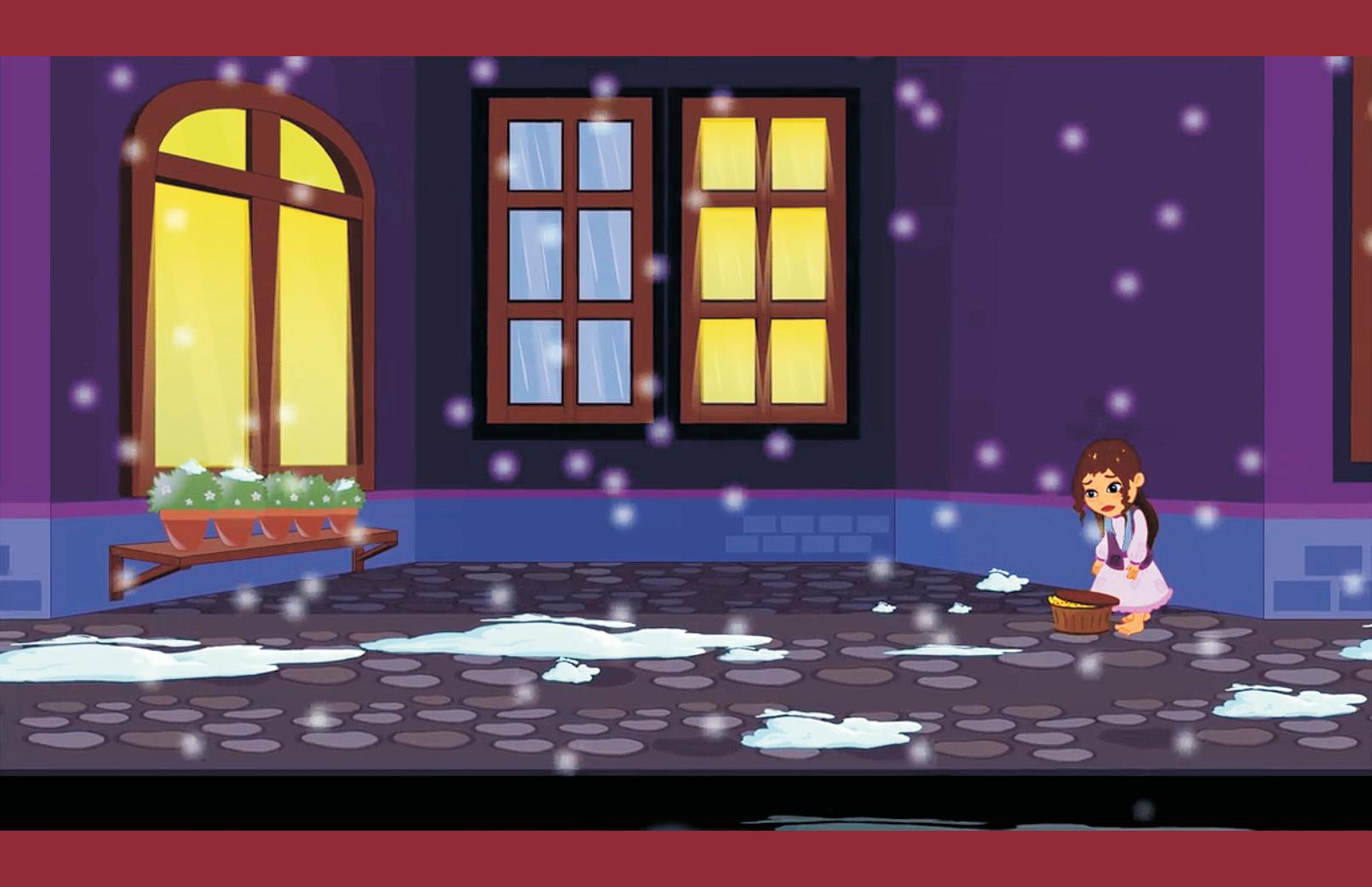
Again, a thought came in her mind that if her father came to know about it, he would be very angry.
Otra vez, un pensamiento ya vení na su mente que si di averiguá su tata, di quedá ele muy rabioso.


But, the cold shivering forced her to think that, probably her father would not be able to know that she burnt just one stick.
Pero, el escalofrío ya forzá ele man pensá, quizá noma di averiguá de su tata si ta cendí ele un palito noma.

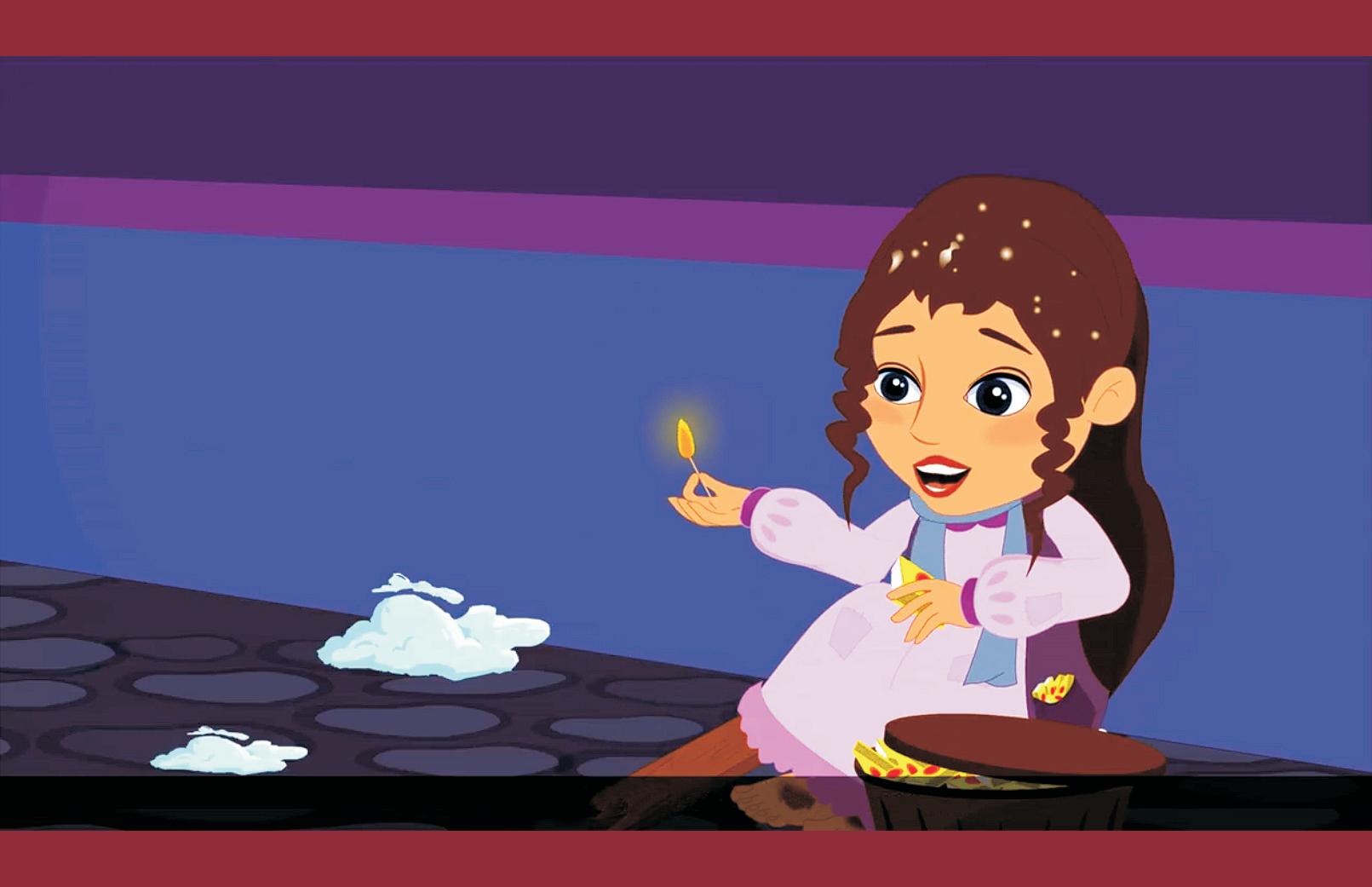
She dared to take out a matchstick and what a surprise! The matchstick turned into an iron stove. She went near the iron stove so she could grasp the warmth and her body felt warmer.
Ya atrevé ele man sacá un palito y na su sorpresa!
El palito ya queda un fugón de hierro. Ya cercá ele na fugón para di garrá el calor, y su cuerpo ya sentí caliente otra vez.

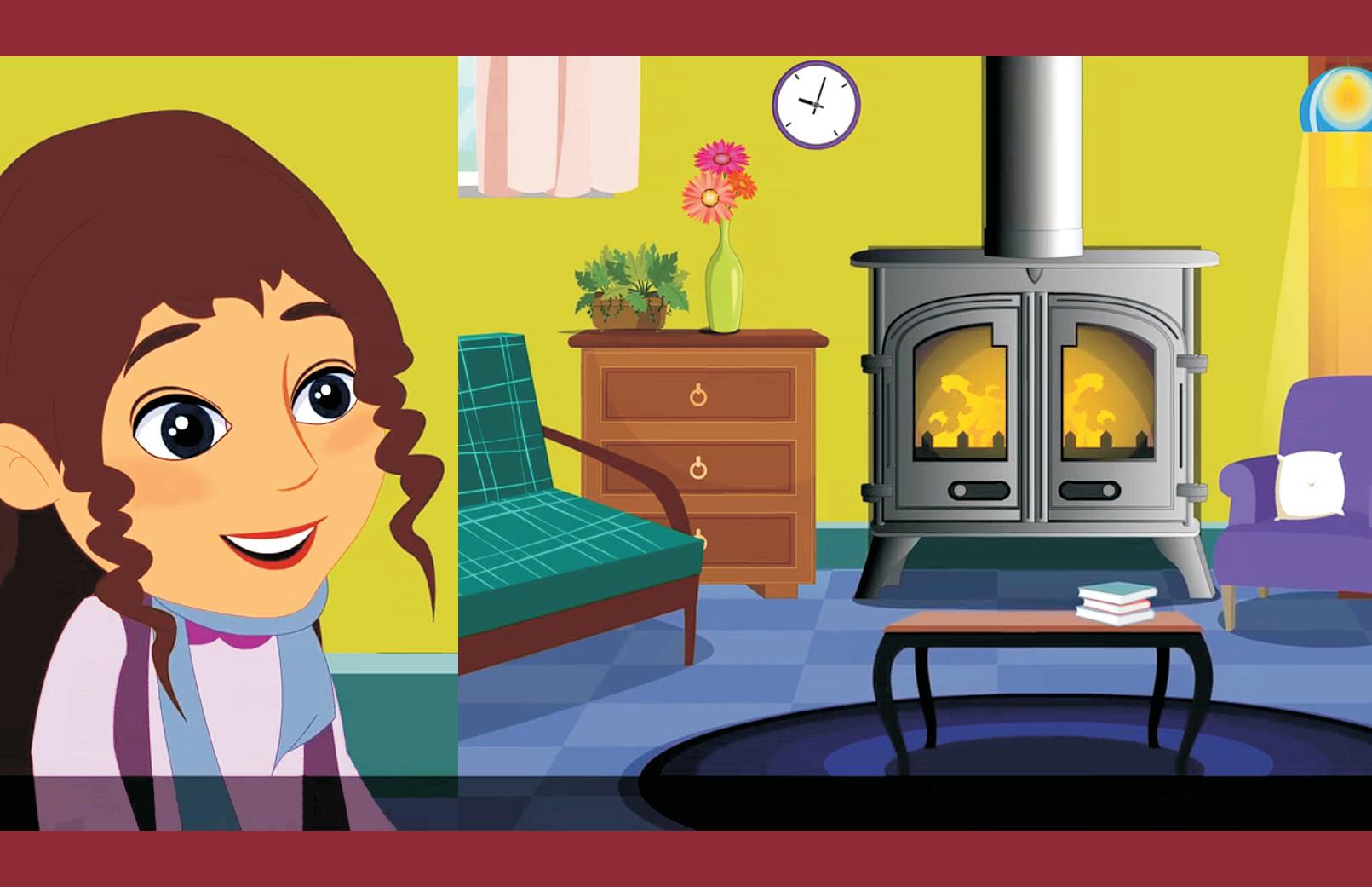
She was very happy, but soon in a few moments a snow drop fell on the matchstick and the flame went out she was very disappointed.
Ya quedá ele muy alegre, pero de pronto na ratito segundo, ya caé nieve na palito y ya matá el flama y ele ya queda decepcionao.


The house was very beautiful with many decorations and many lighted candles. The family living there was having a bountiful dinner.
La casa ya queda muy bonita adornao con mucha mana decoracionesy mana candelas iluminada. La familia que tá quedando allí ya esta cenando una cena abundante.

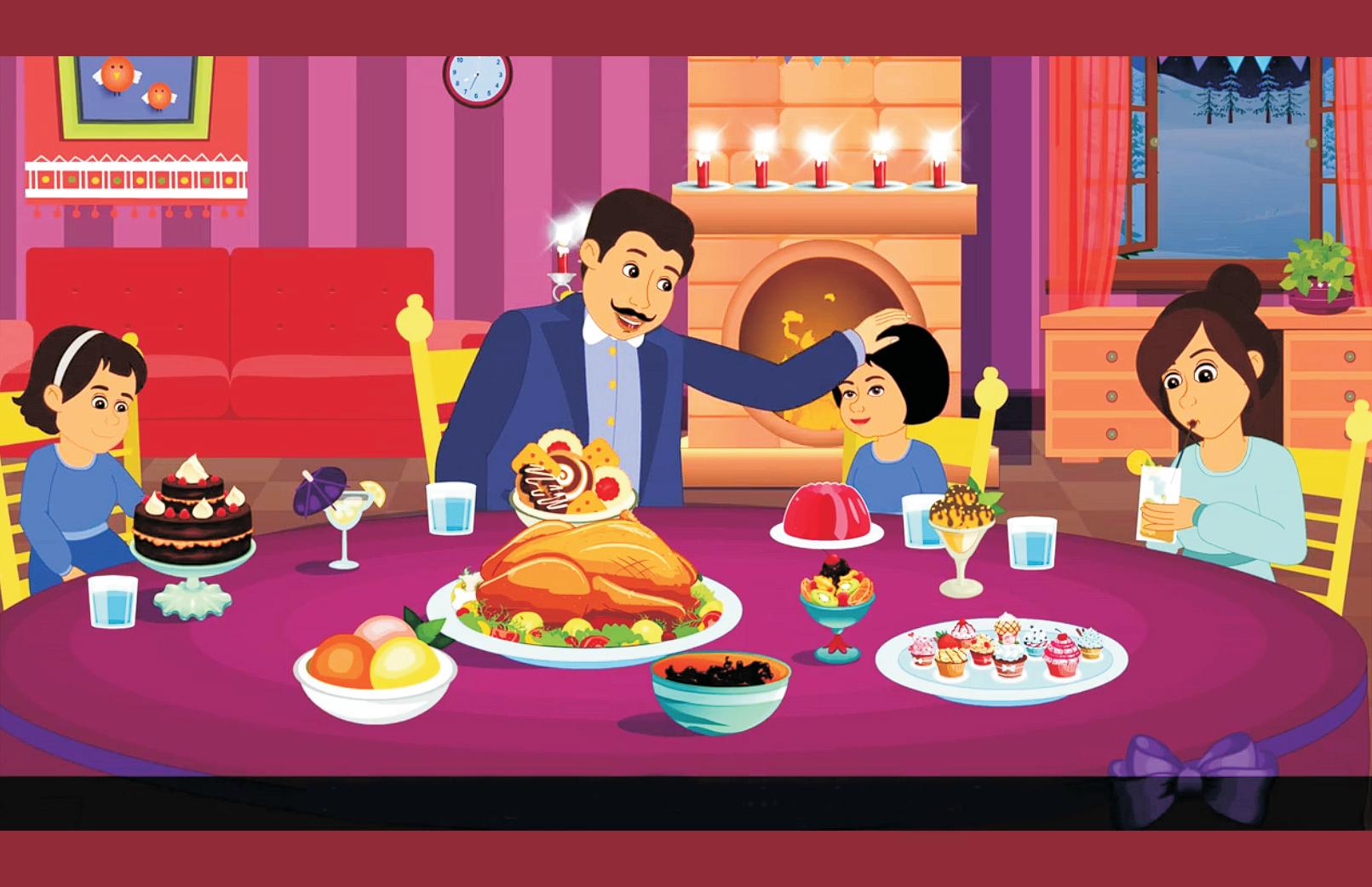
Maria was surprised again the very next moment she saw the roasted chicken coming towards her.
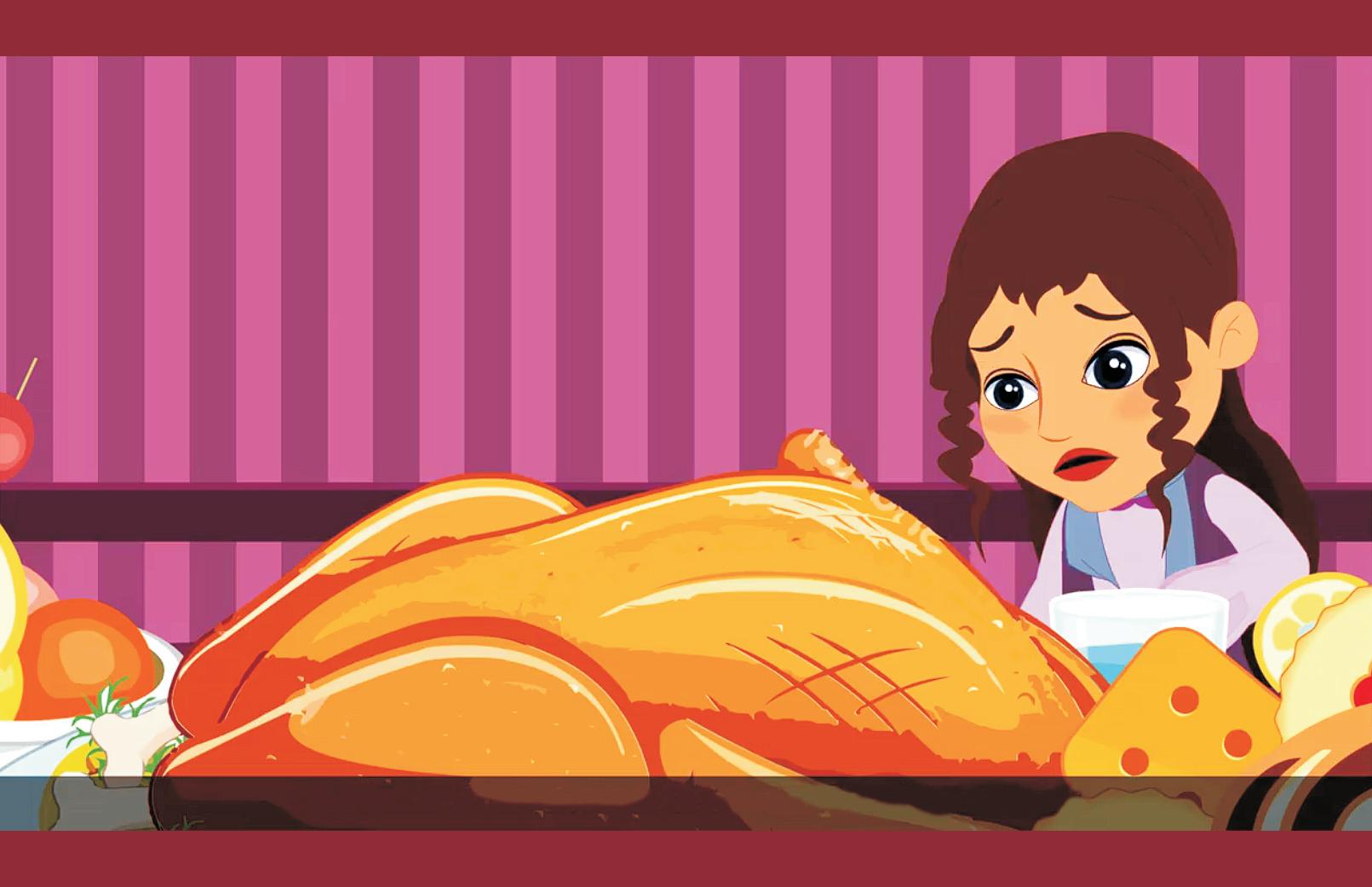
Ya queda Maria sorprendido otra vez cuando ya mirá ele el lechón de gallina viniendo hacia ele.

She felt very happy slowly it was coming to her. She was so hungry already. Slowly it was nearing her handwhen suddenly the flame of the matchstick went off and everything vanished at once.
Ya sentí Alegreng-alegre ele, unrato poco poco ta atracá con ele eso. atracá Cunambreng-cunambre ya ele. Poco poco ya eso na su mano, de repenteya morí el flama del palito, y ya desaparecé todo na mismo tiempo. con ele eso. poco ya atracá


Mary was very disappointed, she looked at the sky pleading God to help her and take her out of her sad situation.
Ya queda muy decepcionao Maria, ya mira ele na cielo y ya rezá ele con Dios para man dale ayuda con ele y di sacá ele na su situación tan triste.

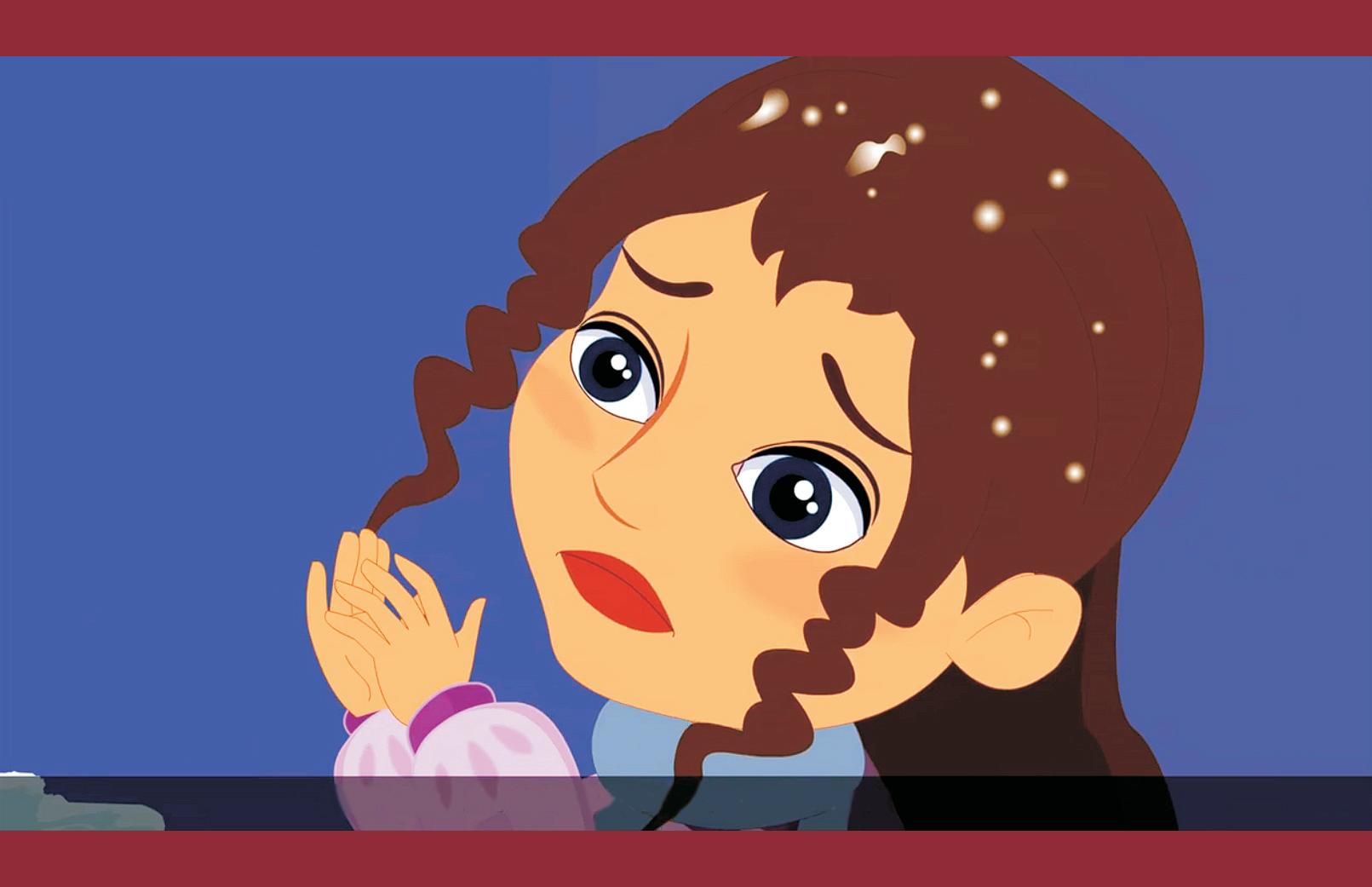
Just then, she saw a falling star. A thought struck her mind, they say that when a star falls, someone dies. She remembered her very sick grandmother and said to herself, “does it mean I lost my grandma? Oh she loved me the most.”
Justo entonces, Ya mirá ele tiene ya caé estrella na cielo. Un pensamiento ya vení na su mente, ta bisa ilos tiene raw queda mori, cuando ta caé una estrella. Ta culdá ele con su agüela emfermo, ya bisa ele con su mismo, “nuay ma ba mi agüela? Ele noma ta cuidá conmigo mucho.”


In her sadness she took out another matchstick and burnt it.
Na su tristeza, ya sacá ele otra vez un palito y ya cindí ele eso.


She was surprised to see her grandmother standing in front, she asked her, “Oh grandma, how come you are here?” And her grandmother answered back that she’s there for her.
Ya quedá ele sorprendido ta mirá su agüela tá de pie enfrente de ele. Ya pregunta ele, “ay agüela, como tá'quí usted?” Y su agüela respondí, “tá'quí yo para ti.”

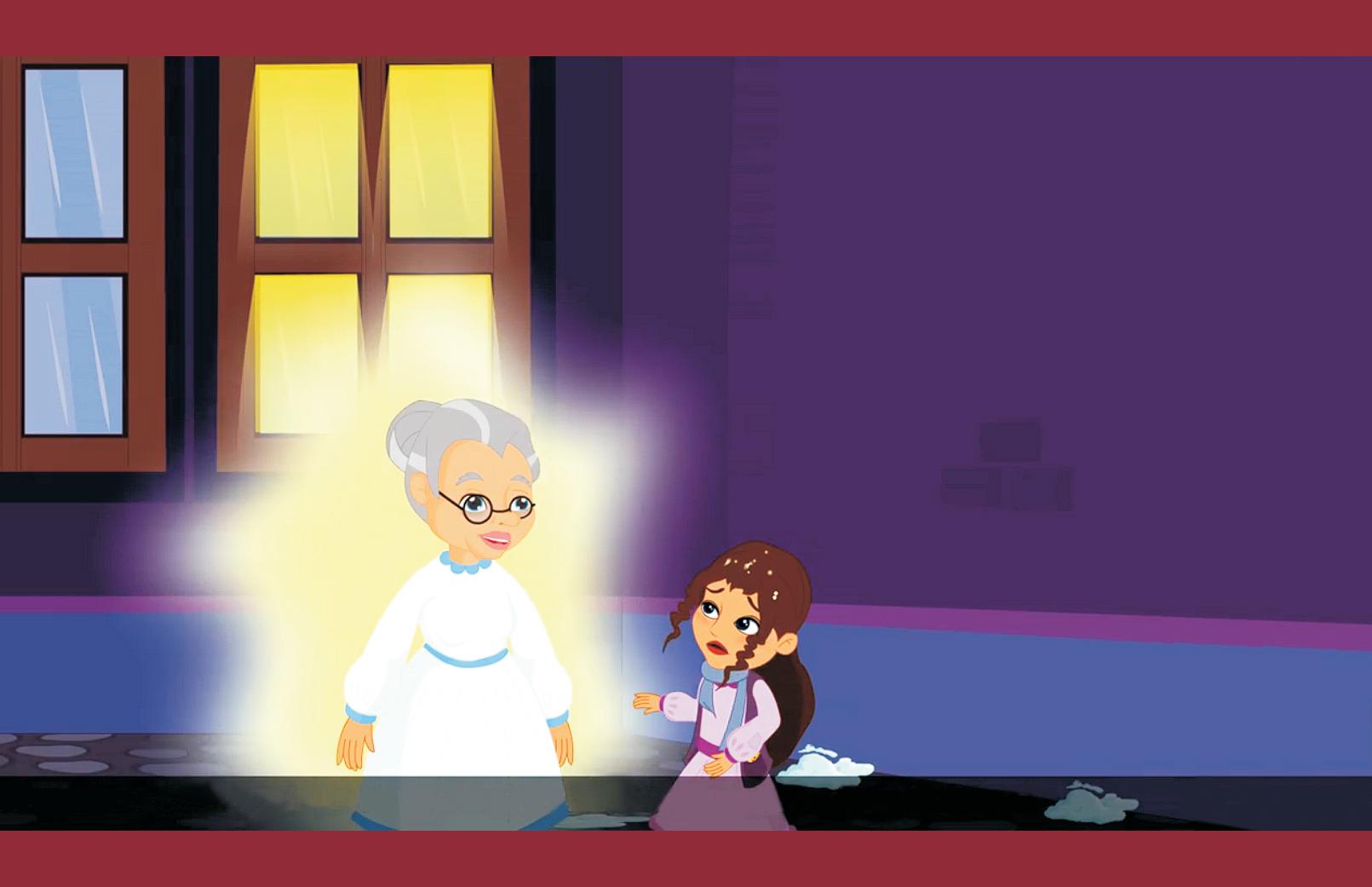
Mary was very pleased to see her grandmother, but got scared the next she thought that her grandmother would also disappear. She took out more sticks from the matchbox and put them all on the burning stick.
Alegreng-alegre queda Maria cuando ya mira ele con su agüela,pero ya tiene miedo ele baka di disaparecé rin su aguela. Ya sacá ele, mas mucho mana palitos y ya poní ele mana esos na palito quemando.


And there was light as bright as the sunlight around them.
Mary looked upon her grandmother with her new white gown.
Ya quedá claro brillante ansina como sol al redondo si donde ilos dos tallá. Ya mirá Maria con su agüela que ta vestí de nuevo vestido blanco.

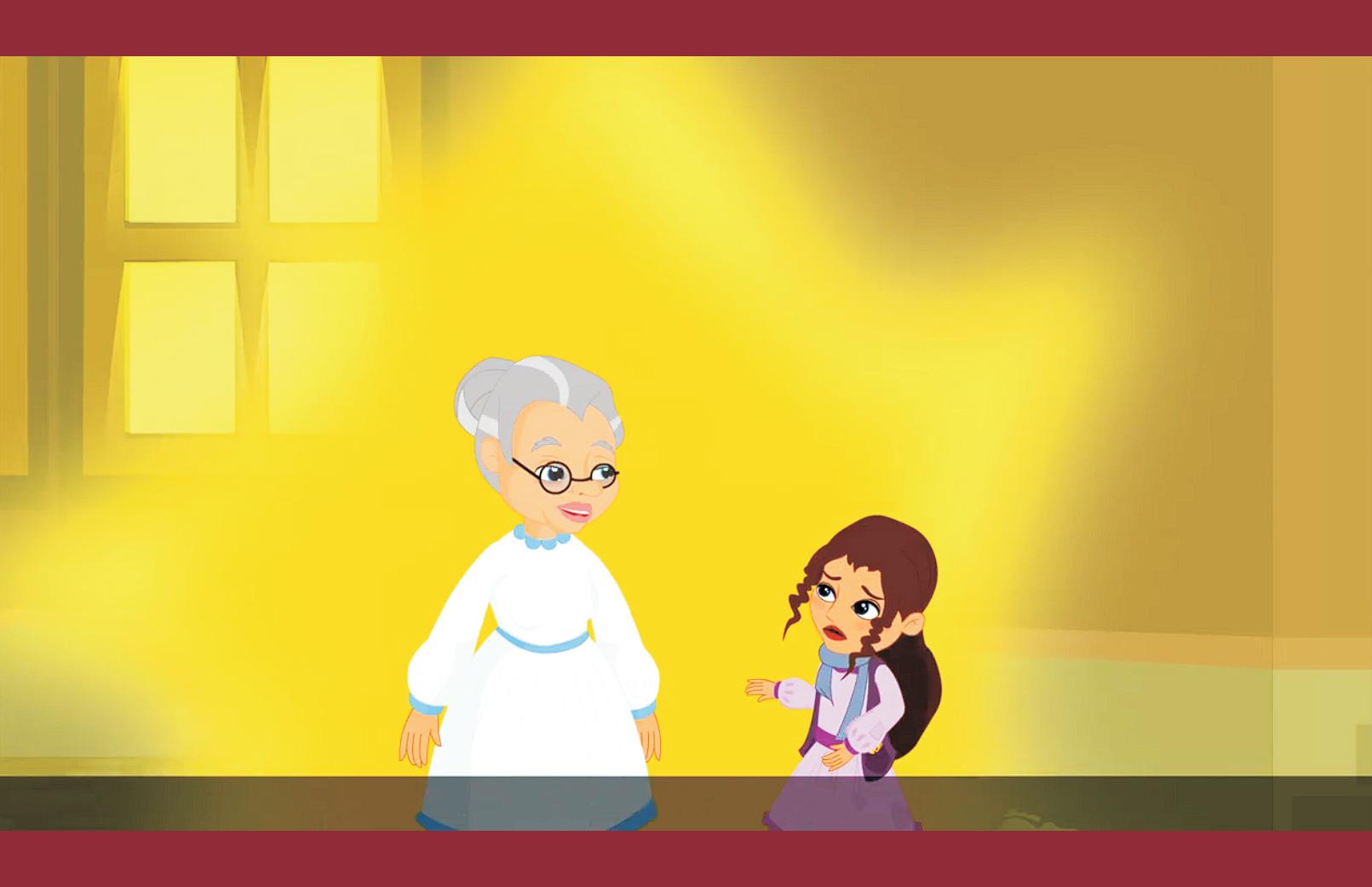
“Grandma I am too scared to stay here anymore. Please take me I want to go wherever you’re going.”
“Agüela tiene yo mucho miedo di quedá aqui mas. Trae usted conmigo, quiere yo di cigué ya noma si donde usted di andá.”

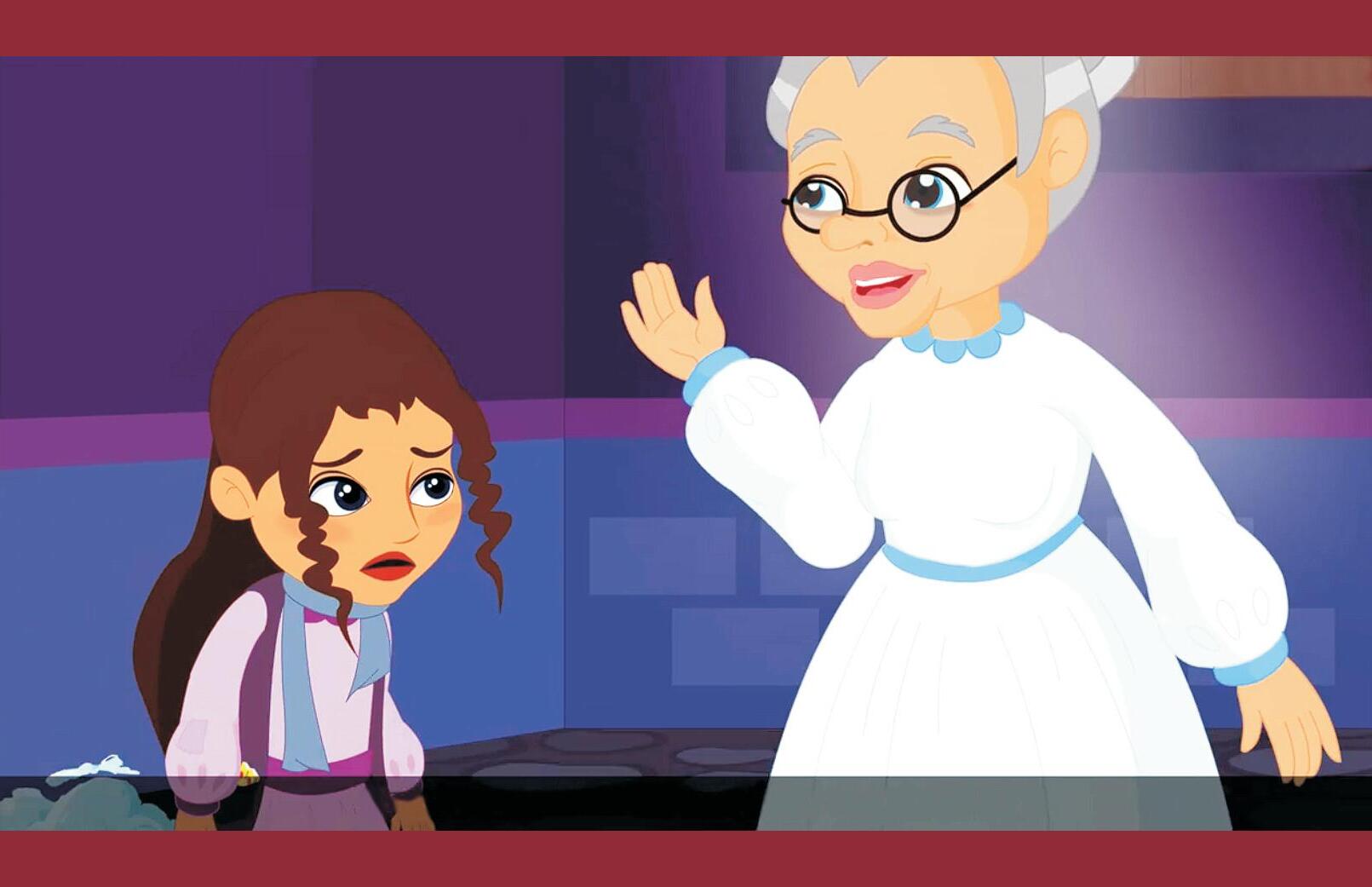
Her grandmother agreed and ask her niece to give her hand. Her grandmother held her hand and lifted her into her arms.
Su agüela ta aculdá y ya pedí con su nieta di dalé su mano.
Su agüela ya tomá su mano y ya llevá ele na su mana brazos.

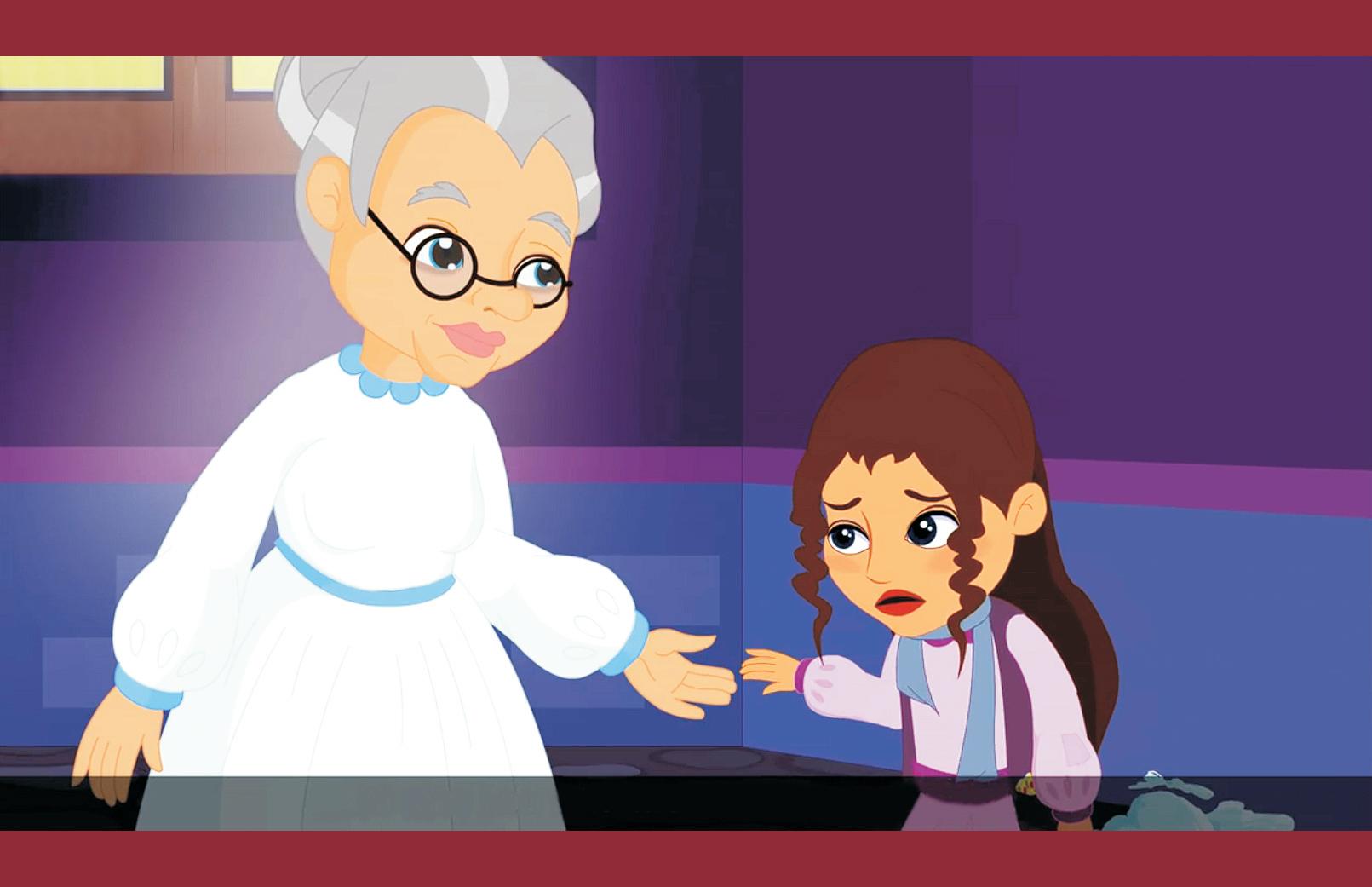
They both started flying upwards. Mary was so pleased that she started clapping her hands. When asked, she told her grandmother that she don’t feel hungry or cold or scared anymore.
Ya empezá volando ilos dos hacia ariba. Alegreng-alegre el corazón de Maria ya empezá ele man aplaudí. Cuando su agüela ya preguntá con ele, ya bisa ele con su agüela, noma ele queda con hambre, noma ele di sentí frío y noma ele ta tiene miedo.


Her grandmother smiled at her and they both flew to the heaven.
Su agüela ya dale una sonrisa con ele, y ya volá ilos dos para na cielo.


The following day, there were many people who gathered around and watching her lying down in the corner between the two houses all feeling pretty sad for her.
Llegando temprano, queda mucho gente que ya reuní- uní mirando con ele acostao na canto na medio del dos casas, todo tiene lastima por la muchacha.


As the sun rays lightened her face in the morning there was an innocent smile on Mary’s face.
Cuando
ya iluminá de mana rayas del sol su cara na temprano, ya quedá una sonrisa sencilla na cara de Maria.

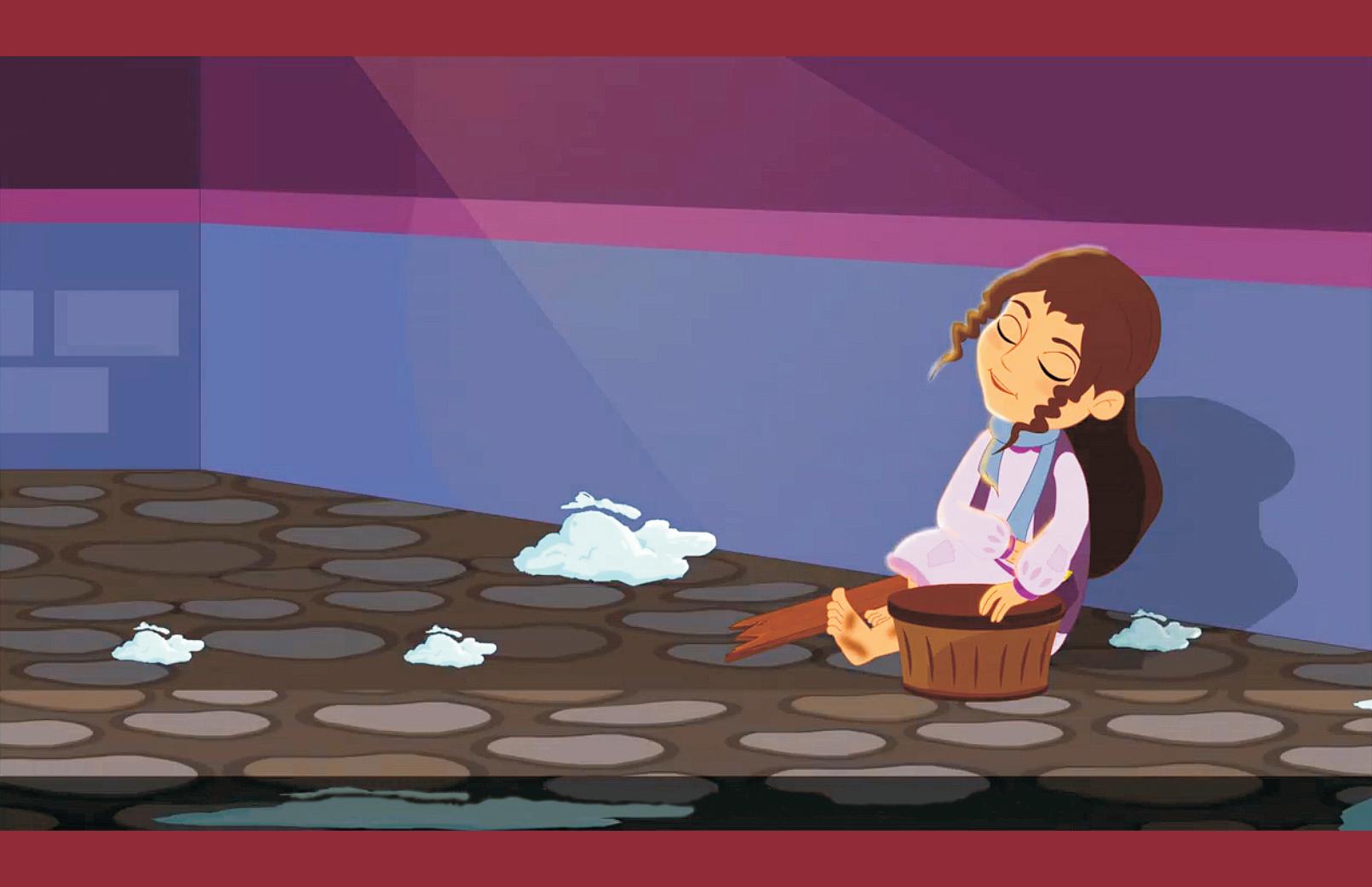
Gracias con todos pudi oí el historia.

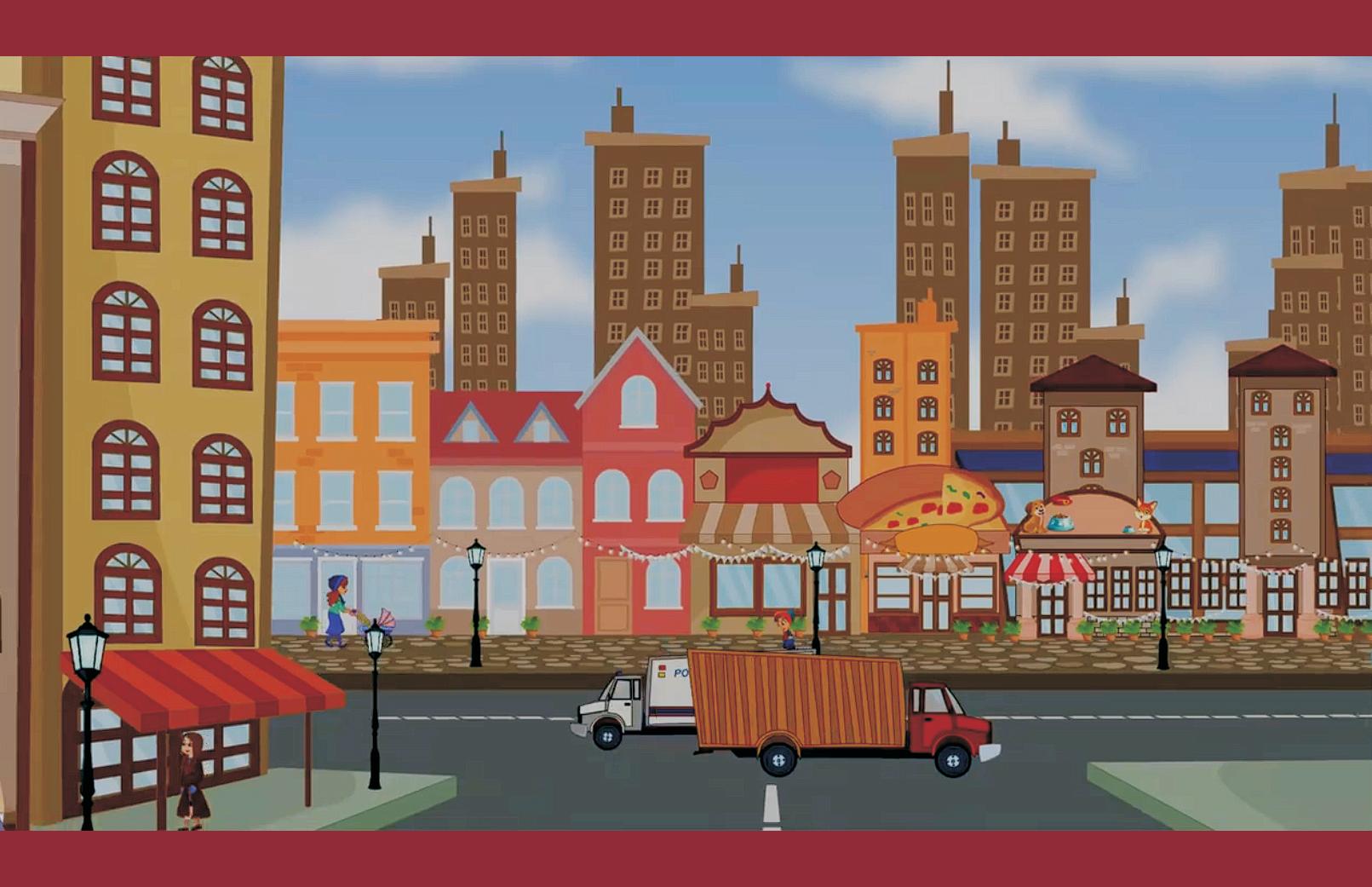

Chabacano Siempre
A Movement for the Preservation of the Chabacano Language
Chabacano Siempre is the precursor to the Movement for the Preservation of the Chabacano Language founded by the renowned Caviteño and Chabacano advocate, Dr. Enrique R. Escalante. It was established in 2009 the same year the Dia de Chabacano was first conducted.
Chabacano Siempre was created to help promote and preserve the use of the Chabacano language particularly on the onset of various social media platform during that time. This new movement was a brainchild of Dr. Escalante and Louis Chin, a local heritage advocate. They both belong to the Sociedad del Historia y Cultura del Ciudad de Cavite, a histo-cultural group in Cavite City. Chabacano Siempre became the Chabacano advocacy arm of the society.
The movement's primary mission is to promote Chabacano through various platforms both traditional and online; support activities that promote Chabacano; and participate in all the activities of the annual Dia de Chabacano Festival. Its vision is to ensure the preservation of the Chabacano language of the City of Cavite for the future generation.
Chabacano Siempre is open to all Chabacano loving Caviteños.
CHIN Ding Funn Design Studio (CDFDS)
CHIN Ding Funn Design Studio (CDFDS) was established in 2019. It is based in Cavite servicing clienteles in the CALABARZON region. The studio caters to different layout and graphic design jobs with accounts here and abroad. CDFDS is also behind some of the promotional designs of Chabacano Siempre in promoting the history and culture of Cavite City through various merchandise. CDFDS is part of Animagraphx Printing Services, a full service printing company with a dependable 27 years' experience in the printing industry.
Stacy Paredes Foote
Stacy Paredes Foote, was born on Padre Pio and Esteban Streets, Caridad, Cavite City, on October 16, 1987 to two prominent Chabacano speaking families, originally from Cavite City.

His paternal grandmother,
Maria Luisa Santos Orlina, is a member of the Ejercito Santos y Vasquez family, whose great uncle Mayor Rosendo Ejercito Santos, first cousin to her grandfather Luis Ejercito Santos, was the namesake of R. Santos Street also located in Caridad.
His Mother Carina Paredes, also rooted in Caridad was born youngest sibling to Mayor Bernardo S. Paredes.
Stacy is also a godson to the late Chabacano writer, educator, and article contributor. Dr. Enrique R. Escalante, writer of three Chabacano grammar books, and was known for his promotion of the Chabacano Caviteño language and its preservation.
Though Stacy grew up in Virginia Beach Virginia U.S.A. he has always been fond of, and proud of his cultural heritage as a Caviteño, and as a Chabacano speaker.
钱鼎芬
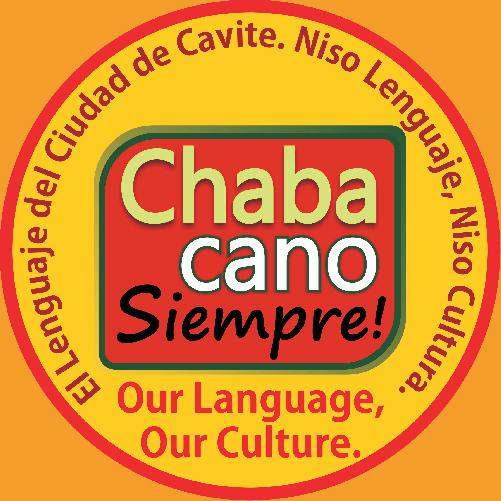

Año 2024
Un Proyecto del Movimiento Chabacano Siempre
